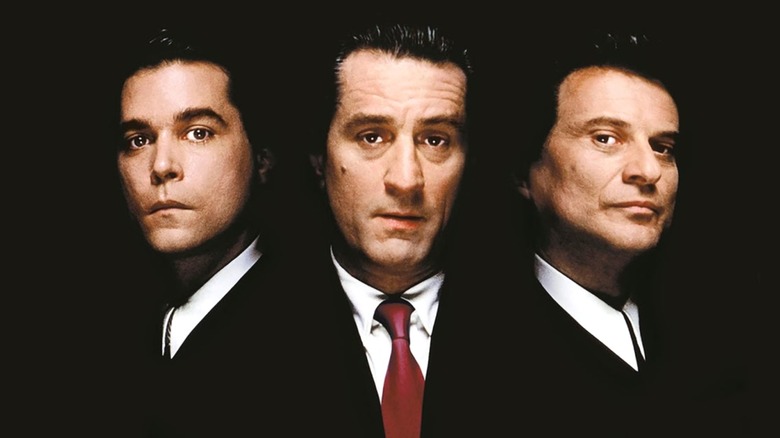
HBO Max is a relative baby when it comes to streaming services. The platform went live in the U.S. in late May 2020, and began creeping worldwide in the months after. It's a plot twist for stately old HBO, which became the first-ever premium cable service on November 8, 1972. It's the company that set the blueprint for dozens of other channels that followed. But HBO wasn't always the juggernaut of content it is today. Back in the '80s, latchkey kids and adults with irregular schedules secretly knew the company's acronym didn't stand for Home Box Office, but rather "Hey, Beastmaster's on!"
Today, HBO Max has a huge stable of content available on demand. Ironically enough, "Beastmaster," with its fetching, mostly naked Marc Singer, isn't currently available. But, as the home of Warner Media content, and through partnerships with Studio Ghibli, Turner Classic Movies, Adult Swim, and many more, it always has something new to check out. To help you navigate your watch list, here's our curated list of great picks currently streaming on HBO Max.
Batman
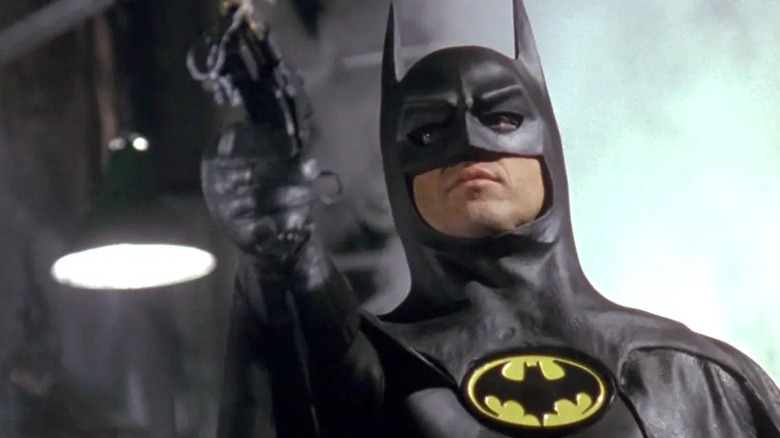
Travel back in time to 1989, when Tim Burton's name on the marquee didn't cause Hot Topic's stock to rise and our favorite Batman was still Adam West. Casting Michael Keaton, star of cult comedy hits like "Gung Ho" and "Mr. Mom," was seen as a bizarre move at the time, but his sardonic, emotionally distant vision of Bruce Wayne was the year's best surprise. A lot of ink was spilled about Jack Nicholson's vibrant turn as the Joker, but honestly, watching the charming Wayne turn into a seething, whispering, stiff-necked vision of terror worked in a way that wouldn't be matched until Christopher Nolan arrived.
There's a reason why there's so much excitement surrounding Keaton's return to the DC universe. Keaton set a modern standard for the portrayal of Bruce Wayne; watching this film is all the proof that a Batman fan needs. As a bonus, the accompanying Prince album slaps in a way few other movie soundtracks do, and the imagination that Burton puts into his set pieces is devoid of the cynically formulaic aesthetic his current movies adopt.
Best In Show
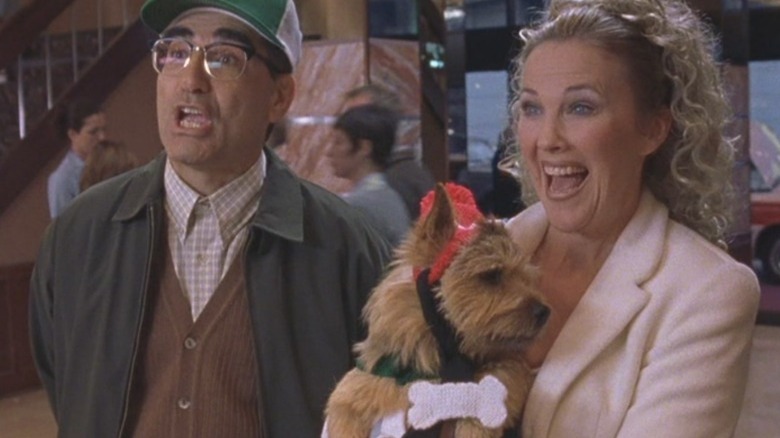
Director Christopher Guest is a master of deadpan comedy. His films start with fairly normal, if eccentric, premises, slowly escalating the weird through off-kilter situations and unhinged characters. His casts are often full of regulars like Eugene Levy and Catharine O'Hara, with not a little work by Guest himself, whose own comedy chops (and whose occasional eerie presence, as seen in "The Princess Bride") are in no doubt. "Best in Show" is top shelf work by Guest, introducing the already odd world of dog shows to an unsuspecting audience.
"Best in Show" is a mockumentary that follows the country's five top trainers on their way to the biggest dog show of the season. The dogs are not only adorable, they're genuine champion purebreds. Their fictional handlers, meanwhile, are a slice of humanity at its most skewed. A showcase for everyone's excellent improvisational talents, the movie will break even the most humorless viewer by the time that Fred Willard shows up to commentate on the big show.
Bill & Ted's Excellent Adventure
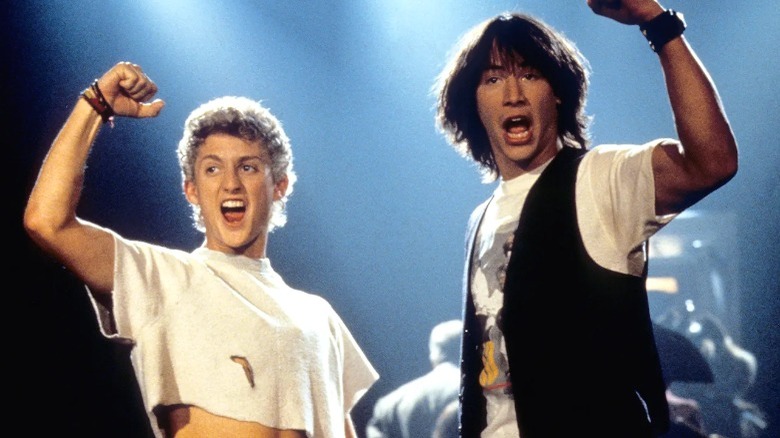
These days, Keanu Reeves is as beloved as Tom Hanks, while Alex Winter is a brilliant documentary filmmaker. "Bill & Ted's Excellent Adventure" goes a long way towards explaining how they got there. In 1989, Reeves and Winter were known primarily for a supporting turn in "Dangerous Liaisons" and as one of the hot vampires in "The Lost Boys," respectively. Suddenly, they unexpectedly burrowed their way into our souls as Ted Logan and Bill S. Preston, the duo also known as the Wyld Stallyns.
"Bill & Ted's Excellent Adventure" is simply good fun. It's a comedy that crosses time and space, with George Carlin guiding these two daffy twerps across history on a mission to make sure they pass high school so that their music can bring world peace. The jokes will probably kill a Very Serious history scholar, but for everyone else, there are some surprisingly smart-but-dumb gags. The only thing wrong with the original film is that Death himself, played by a scene-stealing William Sadler, doesn't show up until "Bill & Ted's Bogus Journey."
The Birdcage
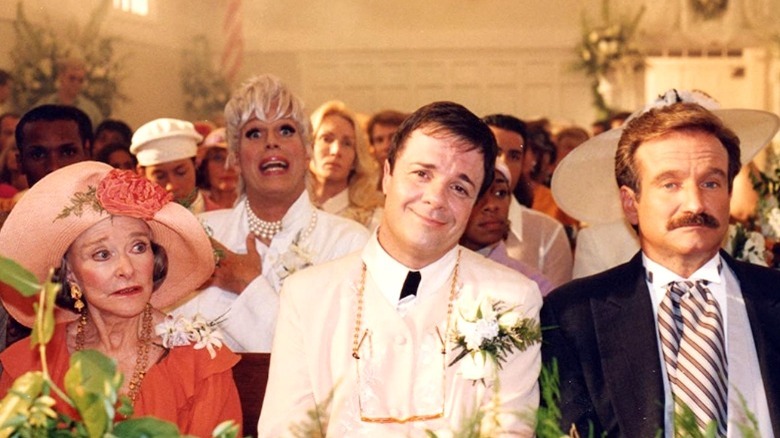
An American remake of the French film "Les Cage aux Folles," "The Birdcage" is a surprisingly important piece of LGBTQ+ filmmaking. It's not deep, or serious, or richly incisive about the stigma gay Americans faced in the '90s. By today's standards, some of its portrayals border on problematic. But, at the time, the film made audiences see this loving family as something normal, and portrayed the central couple as a duo who anyone would welcome to their neighborhood. Back then, that was a huge leap for a motion picture to take, and it helped to progress a conversation that we, unfortunately, are still having today.
The plot is stable but delightful stuff, a little bit of "Look Who's Coming to Dinner" with Hank Azaria mixed in to help cut the tension. Gene Hackman, whose comedy chops are genuinely underrated, plays a stolid conservative politician focused on his public image. Faced with Robin Williams at the apex of his career and Nathan Lane as the closest thing to a depiction of my mother that I've ever witnessed in a film, "The Birdcage" forces Hackman's senator to revisit his discriminative biases. If only reality were this easy.
Blade Runner 2049
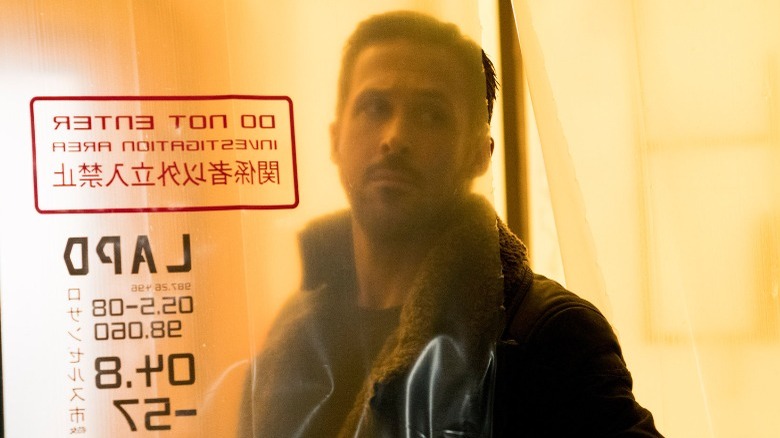
The announcement that the science fiction classic "Blade Runner" was finally going to get a sequel caused many science fiction aficionados — or me, at least — to enter a cocoon of existential worry until its release date arrived. But "Blade Runner 2049" is Denis Villeneuve's baby, not to mention his first project after one of the best science fiction films in a decade, "Arrival." That comforted us nervous fans; the news that Harrison Ford was coming back was a huge deal, too.
The result is as thoughtful, slow, and smart as the original. It's not a film designed to be a blockbuster, although it would've been nice if it had done blockbuster business at the theater. Regardless, while both "Blade Runner" and its follow up discuss the inherent worth of life, "2049" shifts the discussion towards a sharper look at human commodification and misogyny. Jared Leto's Niander Wallace is cut from the same bleak fabric as Oscar Isaac in "Ex Machina," while, like Rutger Hauer's Roy Batty, Ryan Gosling's K becomes more human than human, feeling the torment of what he is down to his diodes.
Blazing Saddles
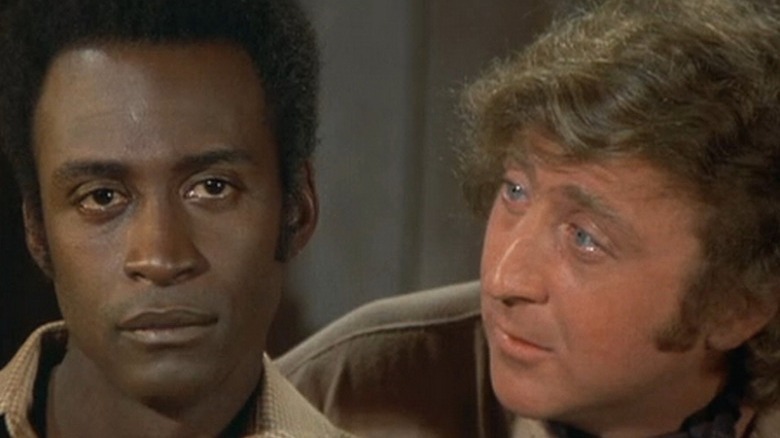
If you haven't seen Mel Brooks' comedy masterpiece "Blazing Saddles," it's well past time to change that. A satire about everything to do with the old American West, from real life social history to western movie tropes, not to mention a searing lampooning of racism, it's an eternally relevant film that can't be replicated. Don't listen to the people who insist that movies like this can't be made anymore; many of them don't understand that they're represented in the film by the common clay of the West, not Gene Wilder. The only exception is Mel Brooks himself, who is right that a remake would probably lose the bite this movie thrives on.
The language in the film is something to be aware of, if you're introducing younger viewers to classic cinema. The use of racial epithets is at a Samuel L. Jackson-tier of feisty. However, the delivery is laser-hot funny, and the joke is always on the sad, socially backward losers, not the targets of the hate speech.
The Brood
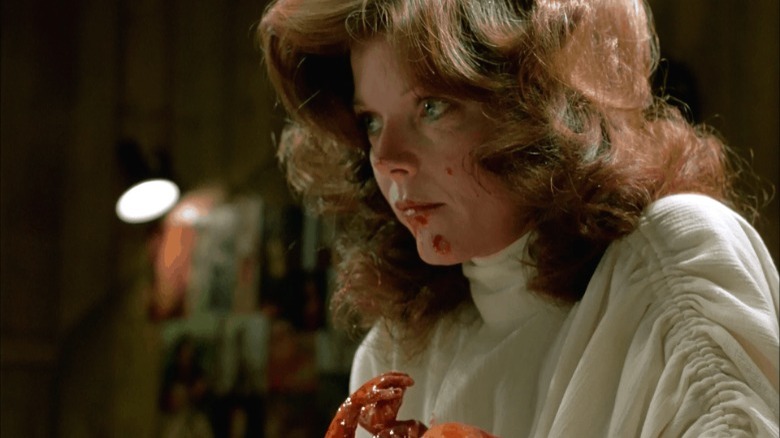
There are a few movies about the emotional devastation that a failed relationship can inflict on us, but David Cronenberg's "The Brood" looks down on flicks like "Marriage Story" and "The War of the Roses" with a cynical, horrific eyeball dangling out of its fleshy socket. Yes, it's a body horror movie, and it slowly walks the audience right up to our new Holy Mary Mother of the Brood while she gently cares for her awful newborn like it's a puppy.
Cronenberg's fascination with the mind and the body is on full display here, with the not-quite-villainous Dr. Raglan offering a controversial new emotional therapy. Psychoplasmics puts the matter over the mind, changing the flesh in order to release repressed emotions. It's controversial, but recent divorcee Frank Carveth finds out a lot more about why this therapy is dangerous before he reunites with his ex-wife. The titular brood, meanwhile, make the Children of the Corn look charming.
Casablanca
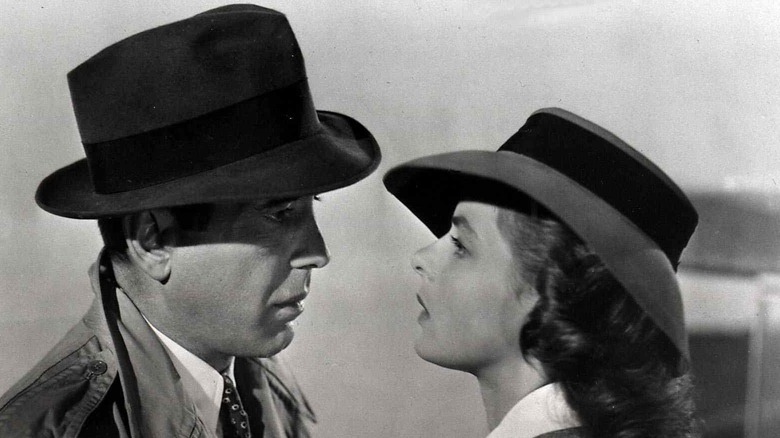
It's easy to succumb to the suspicion that our hoary film classics are going to be snore factories. Sometimes, that assumption is justified. Other times, our modern hesitations keep us away from genuine treasures. "Casablanca" falls into the latter category. Yes, it's a sappy old romance starring Humphrey Bogart and Ingrid Bergman. It's also an emotional exploration of the joy and love of living, especially when the rest of the world is teetering on the edge of hell.
While the heart of "Casablanca" is the frayed thread of old romance between Bogart's charming nightclub owner and Bergman's smoky-eyed resistance agent, its soul is a hearty condemnation of neutrality in the face of evil. Casablanca, the gem of Morocco, is a place where both the Nazis and the members of the French Resistance can get a drink in relative safety and peace, but that neutrality is a specter that's easily banished when it's time to choose a side. As a film school requirement, "Casablanca" can be exhausting. As a movie, it's still spectacular.
Cat's Eye
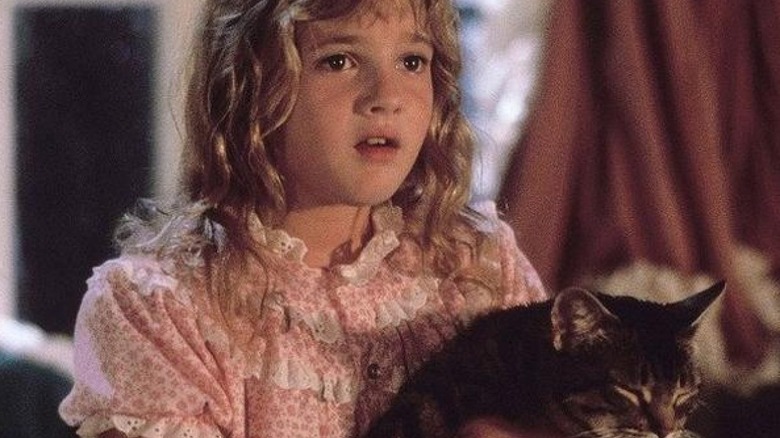
Films don't have to be perfect to be good. Sometimes, walking away feeling like you've been properly entertained is all you want. "Cat's Eye" is a flawed horror anthology from the early '80s that's still a joy to watch. A wily, hard-stalking tomcat is our link between a trio of tales. Two are adapted from Stephen King's short story collection "Night Shift." "Quitters, Inc." pits James Woods against his nicotine addiction and a Mafia don with a unique take on how to go cold turkey. "The Ledge" is a rich man's gamble gone awry, with the cruelest, most insistent pigeon to ever appear in a film.
It's the last story, a dark children's fantasy that's original to "Cat's Eye," that deserves to be regarded as an equal to "Labyrinth" and "The Dark Crystal." Our tired tomcat eventually finds his way to the arms of young Drew Barrymore. Christened General, the kitty's task is to protect this little girl from the monster in her walls, despite her mother's upsetting interference. The result is a bloody delight that feeds on our childhood fears.
Chaplin
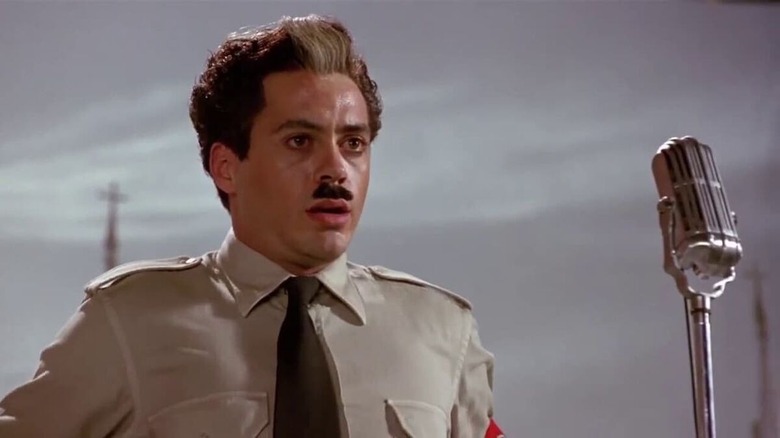
"Chaplin" was the last starring role for Robert Downey Jr. before he entered a dark period of his life. It's poetic, if not outright melancholy, to think on this saccharine but well-meaning docudrama in that light. Unlike Chaplin, whose career was gradually dismantled by J. Edgar Hoover's bullying tactics and whose return to the American limelight was only a bittersweet appearance at the Academy Awards, Downey has earned a full second life, becoming one of today's biggest onscreen heroes.
Sir Richard Attenborough's film is beautiful to behold, and it continues to offer one of Downey's best performances to date. It's not without deep critical flaws, and those looking for a deep dive into Charlie Chaplin's legacy are better off starting with his own autobiography. Nonetheless, "Chaplin" is a lovely watch, and a look back at a time when it was new and brave to use the cinema to take a stand.
Citizen Kane
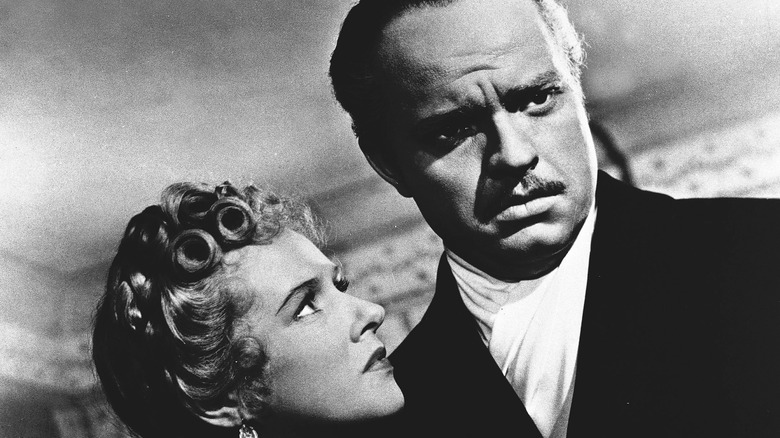
Like "Casablanca," Orson Welles' "Citizen Kane" is a movie you feel like you've subliminally watched a hundred times because your film geek friend won't ever shut up about it. I get it. But watch the thing at least once, anyway. There are tricks to this film's cinematography that are still hard to match with modern tech and CGI. It's unbelievable to think that this was Welles' first directorial job, and yet it's still the poster child for "The Best Films of All Time" lists 80 years later.
A Faustian satire of the men who forged and profited from the plague of yellow journalism that still plagues the news media today, "Citizen Kane" slowly tears Charles Foster Kane apart by using his own ego as the knife, flensing him back to his deathbed and his half-remembered childhood dreams. Decades before video rentals were invented, this movie played in William Randolph Hearst's mind for free, infuriating him in the way that I wish I could haunt Ted Turner. It's also Donald Trump's favorite movie, which is funnier than every gym bro who's obsessed with misunderstanding "Fight Club."
A Clockwork Orange
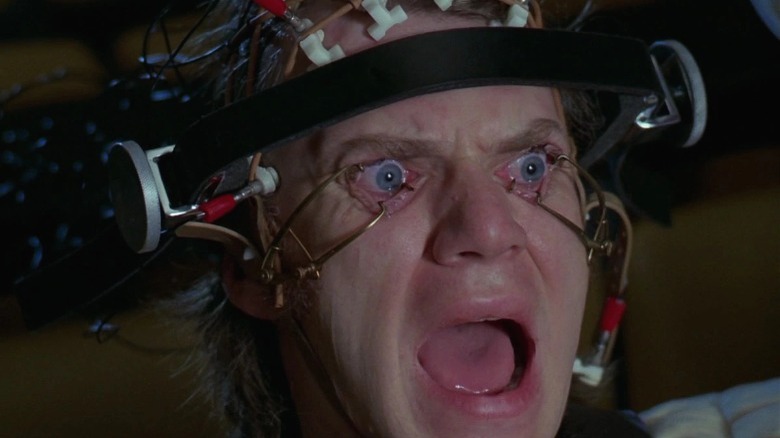
Stanley Kubrick's entire filmography is worth a film fan's time, although "A Clockwork Orange" remains harder to watch than the flawed "Eyes Wide Shut." An adaptation of Anthony Burgess' dystopian novel, Kubrick's take is heavy on the cynicism underpinning this near-future nightmare. It also, much to Burgess' dismay, skips the optimistic epilogue that suggests that Alex can grow out of his awful behavior. As time goes by, Kubrick's decision looks wiser than ever.
Alex (Malcom McDowell) and his pack of droogs are a symbol of this unknown era's chaos. They're the result of an authoritarian system that both creates and condemns monstrosities, drawing a line between whether or not these creatures are useful to the greater system. It's the first lesson that Alex truly heeds in his life, and the vile growth he goes through in the second half of the film is bitterly realistic. Sorry, Mr. Burgess. Boys may be boys, but Kubrick understands what growing up actually means.
Crazy Rich Asians
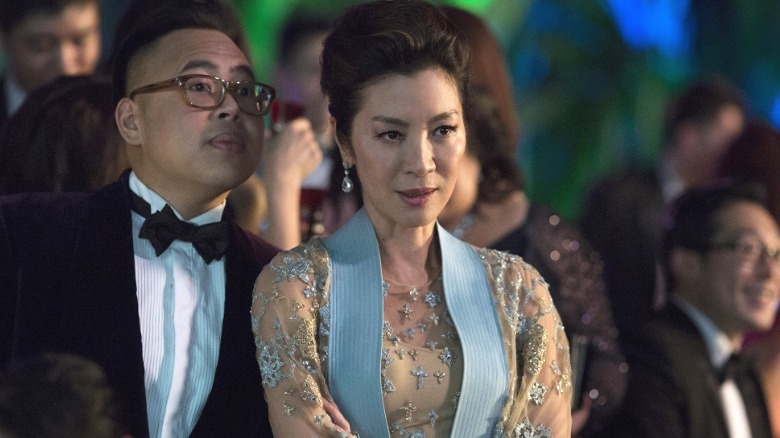
Some things cross cultural boundaries. The first time that someone meets their current partner's family, for example, is often one of the most stressful days in a relationship. As such, putting that moment on film is guaranteed catnip, offering up a rich bed of potential for interpersonal strife and embarrassing mishaps. "Crazy Rich Asians" ups the ante even further when Rachel finds out that her boyfriend, Nick, is the heir of one of the richest families in Singapore.
"Crazy Rich Asians" is a cute, clever, and critically acclaimed movie based on the bestselling novel by Kevin Kwan. Its greatest strength is the way it uses classic romantic comedy tropes, making it familiar to almost any audience in the world. That's also its biggest flaw. "Crazy Rich Asians" is a wonderful film, but don't confuse its depictions of high-class Singaporean society with reality. Still, the sumptuousness of the film is irresistible, and any film with Michelle Yeoh is an instant win for me.
Dangerous Liaisons
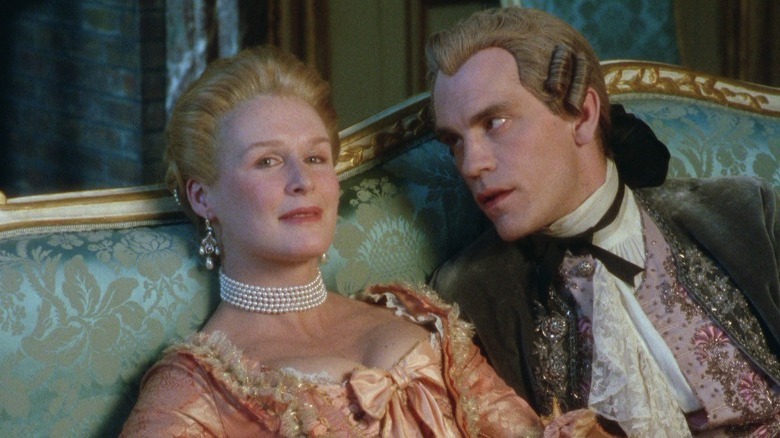
The big-budget period drama goes through cycles, with each era bringing out one or more films that stand the test of time. The 1980s, with its booming economy, big hair, and bombastic music, was the perfect time to go back to pre-Revolution France and its ancien regime. Here, high society is an alien world of masquerades, dinner parties, operas, and glamor. However, such luxury breeds a different kind of war, and "Dangerous Liaisons" finds its most deadly general in the Marquise de Merteuil.
Glenn Close plays the Marquise, locked in sensual, verbal combat with her ribald ally, John Malkovich's Vicomte de Valmont. Together, they plot to upend the relationships of others out of petty vengeance and rebuffed lust. But raw emotions are about as safe as a sweating stick of dynamite, and de Mertuil's plans eventually go astray. It's a beautiful movie about beautiful people doing beautifully petty things — and Keanu Reeves is in it, for which I have zero explanation. He looks great, though.
The Dark Crystal
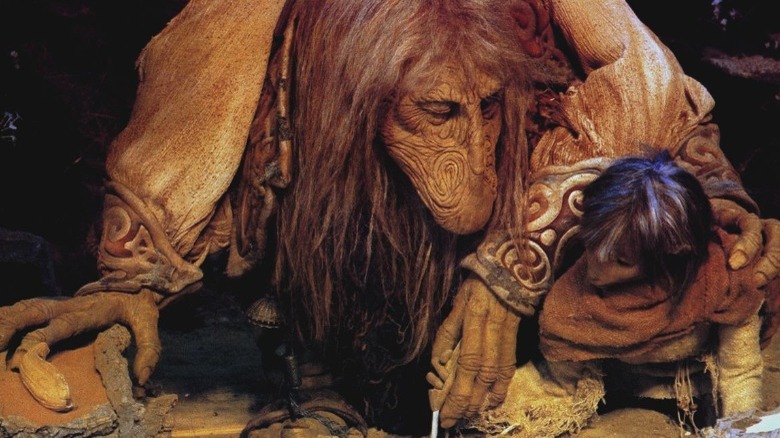
The best thing that Jim Henson gave us wasn't the Muppets. It was his imagination and his drive. Yes, those fueled the Muppets, but there were a few glorious times when Henson his felt creatures' potential to tell other kinds of stories. One of those occasions resulted in the nightmarish fantasy "The Dark Crystal." When looking at the intricate details of the Skeksis and the world they dominate, bear in mind that this film was made in 1982. It's ageless and perfect.
Artist Brian Froud worked with Henson to design the alien world of "Dark Crystal." It begins with math; Thra is a world of threes, and that informs the geometry of its ecosystem, making it both unsettling and beautiful to look at. The story may boil down a basic hero's journey, but there's an unflinching grimness to that adventure. This world is legitimately dangerous, and the film doesn't shy away from death. Meanwhile, if you want to switch streaming services for a moment, I'm never not going to be mad over the cancellation of "The Dark Crystal: Age of Resistance."
Deliverance
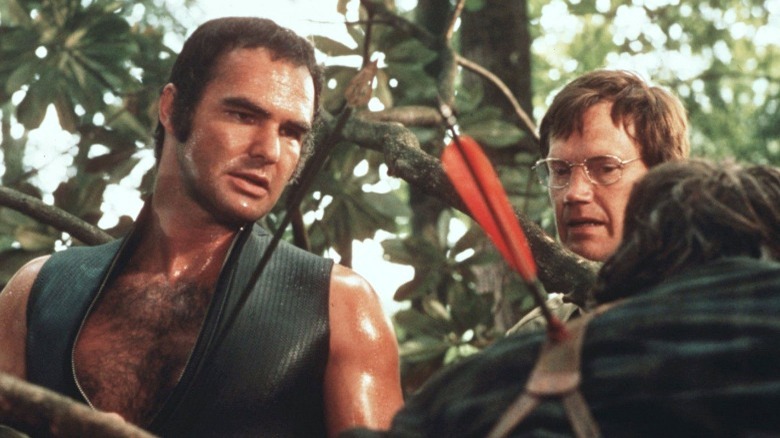
Many people know exactly two things about "Deliverance." Yes, there's some fly banjo-pickin', and yes, Ned Beatty is told to squeal like a pig. There's a lot more to this survivalist stress ball than that, however, although the rape scene is certainly one of the more upsetting sequences in cinematic history. After that, the film turns into a purely human prequel to "Predator." Our four suburbanite men are now hunted by locals all too familiar with the unspoiled Georgia forests. In hindsight, they should've probably just stayed in a Holiday Inn.
The cinematography is lushly green, making the awfulness that goes on that much more complicated. It's human stuff, and we could probably get into some thematic investigation about the film's views on masculinity. However, the first viewing of "Deliverance" usually results in a two-hour long anxiety attack, with not a lot of room for more thoughtful examination. Filmed on location in Georgia decades before the Atlanta studio boom, "Deliverance" is a classic for good reason. Eat light before viewing, though.
Doctor Zhivago
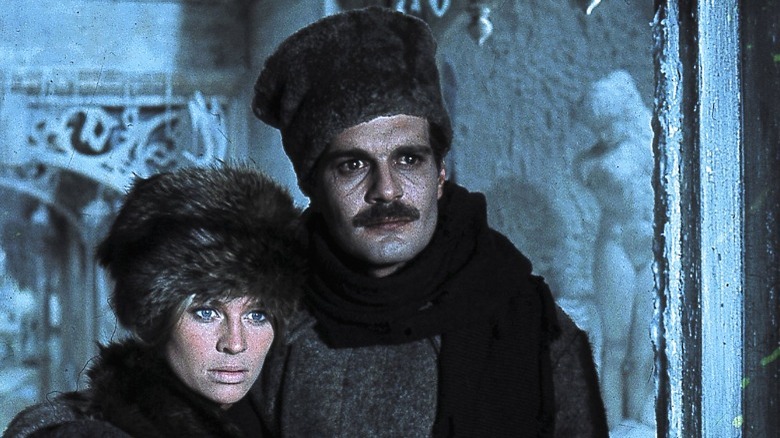
If "The English Patient" is too languid for you, you may have a rough time with its spiritual forefather, "Doctor Zhivago." Clocking in at three hours, it's a major commitment for a single film. And yet, this historical classic does so much with its fragile, passionate emotional connections that the slow pace becomes another symbol of the yearning that haunts its cast.
The backdrop of the film is the encroaching social collapse of the Russian Empire in the wake of World War I. The country would spend half a decade locked in a civil war that would end the life of millions, and that paved the way for the Soviet Union. "Doctor Zhivago" puts much of the brutality of the era at arm's length, though, with Yuri Zhivago (Omar Sharif) guiding the audience through a world of vivid romance. It's a softer film than director David Lean's previous masterpiece, "Lawrence of Arabia," but it's permeated by the same grace.
Eraserhead
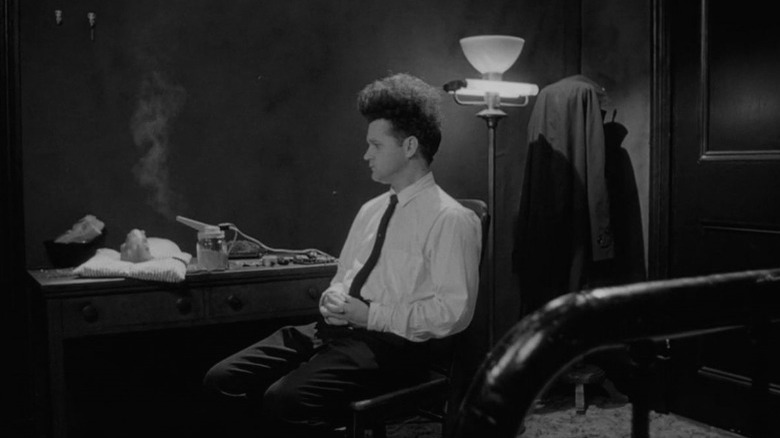
I don't know what the infamous baby in "Eraserhead" is made out of, and neither do you. Decades later, director David Lynch still isn't telling. In fact, "Eraserhead" doesn't go out of its way to make anything clear, and that's its eerie gift to us. It's a film that's trapped somewhere in the place between dream and nightmare, a Rorschach blot that lets every new viewer attempt to piece together what it's trying to say for themselves.
There may be a clue in the knowledge that David Lynch's first wife, Peggy Reavey, gave birth to their daughter shortly before he filmed "Eraserhead," and the easiest symbolism to spot in this surrealist hell is a mortal fear of fatherhood. But there's also an industrialist terror-scape lurking beyond our vague protagonist's apartment, and a man who seems to control the sky. What does that mean? Well, it's fun to figure out. Or unsettling. Or unsettling in a fun way. That's the David Lynch experience, and he was a master at it from the beginning.
The Evil Dead
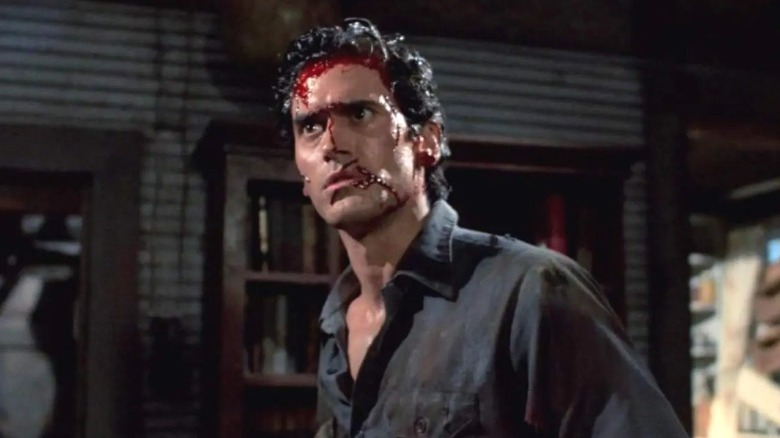
Sam Raimi pioneered some great pulp horror cinematography with 1981's "The Evil Dead." Technically, it's not his first film — that's "It's Murder," his lumpy but funny student film — but it is the movie that launched Bruce Campbell's chin into the limelight, and it's the film that gave us the "Raimi Cam," an unsettling, janky first-person camera effect that brings us inside the mind of some unseen, hideous supernatural force. It's an excellent example of creativity inspired by desperation, as Rami simply couldn't afford creature shots, and remains a horror staple today.
"The Evil Dead" is a fun trope-setter that should be viewed before any cynicism sets in. Yeah, kids getting messed up in a cabin in the woods is basic horror fare these days, but the way Raimi films it reminds us that it was once pretty fresh and new. Stephen King helped get this film noticed in 1982, and if the king of literary horror calls it something special, it's worth looking back on this film to see what he fell in love with.
The Exorcist
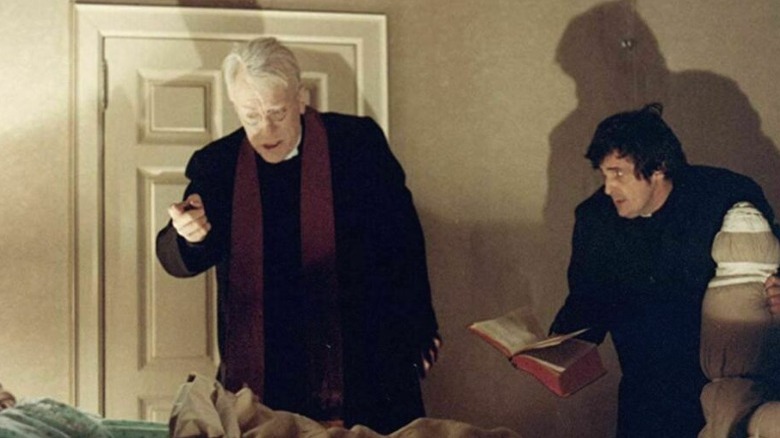
Every child ends up watching one or two movies way before they should. If that kid is lucky, they'll be exposed to William Friedkin's 1973 landmark horror movie "The Exorcist" before they're 12. Bonus points if they have a lapsed Catholic parent who's obsessed with religious horror. That's the best way to first visit the MacNeil family, Satan, and the Jesuit priests who become ensnared in the Devil's latest joke. If that scenario isn't an option, pick a nice, autumn night around Halloween, fire up "The Exorcist," and discover why some of us still get a bit nervous whenever "Tubular Bells" starts to play.
The aesthetic of "The Exorcist" may have finally started to feel dated, with Chris MacNeil's '70s wardrobe and the film's occasionally chunky dialogue showing its age. A drinking game based around the phrase "For Christ's sake" and its variants would probably kill you. Still, the acting remains a strength, with Jason Miller anchoring the whole film with his saddened, weighty presence. These days, the greatest lingering horror is no longer the Devil, but instead the archaic, noisy machines that poor Regan is subjected to.
The Faculty
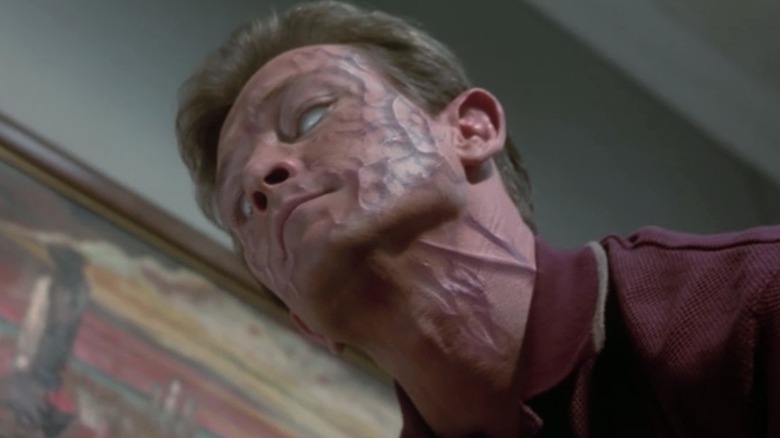
Robert Rodriguez loves to blend genres, and "The Faculty" is no different. It's a grindhouse riff on John Carpenter's "The Thing" set in a high school, with some twists to its characters that a lesser director would back away from. A young and nebbish Elijah Wood is nominally our main character, but Josh Hartnett's drug lord begins to take the center stage by the back end of the film, as the duo and their classmates battle the creatures who have possessed their teachers.
The rest of the cast pulls the film along with a keen awareness of the archetypes they're inhabiting, with special notice given to Robert Patrick, who is still so good at playing hard-ass terrors that it's getting unsettling. As the relentless gym teacher who we've all had a nightmare about at least once, he's the perfect villain for a big chunk of the film. However, we can't applaud him alone, as the entire faculty at the heart of this small town comes straight out of our anxieties, even before the alien invasion unfolds.
From Dusk Till Dawn
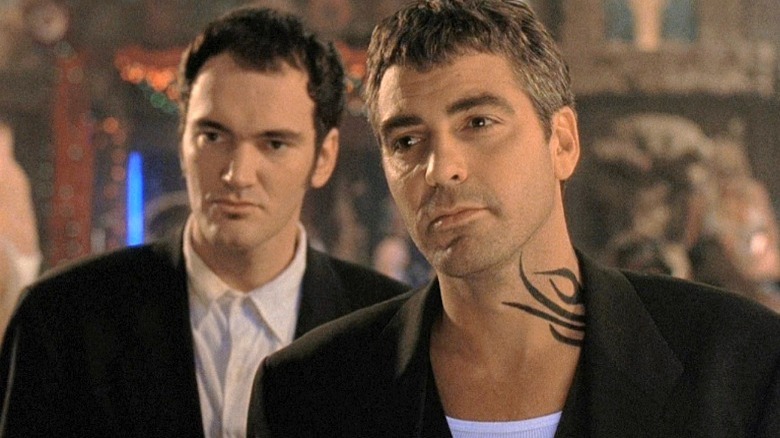
Speaking of grindhouse fun, "From Dusk Till Dawn" is one of the most successful movies to pull a bait and switch on its audience, and although it's impossible to not be spoiled about the big twist anymore, it's still executed perfectly. What starts as a crime thriller about two murderous fugitives who turn the life of a troubled family upside down turns into a bloody thesis about needing monsters to fight monsters.
It's getting harder and harder to watch Quentin Tarantino as the twitchy younger Gecko brother, especially during the scene where he's fixated on Salma Hayek's feet, but at least the man knows his niche and plays it well. George Clooney is remarkably great as the stable but deadly Seth Gecko, with Harvey Keitel as a weary family patriarch to counterbalance him. The rest of the cast is full of B-movie and horror greats, including Tom Savini and Danny Trejo. "From Dusk Till Dawn" is always a fun weekend watch — just ignore the sequels and spinoffs.
The Fugitive
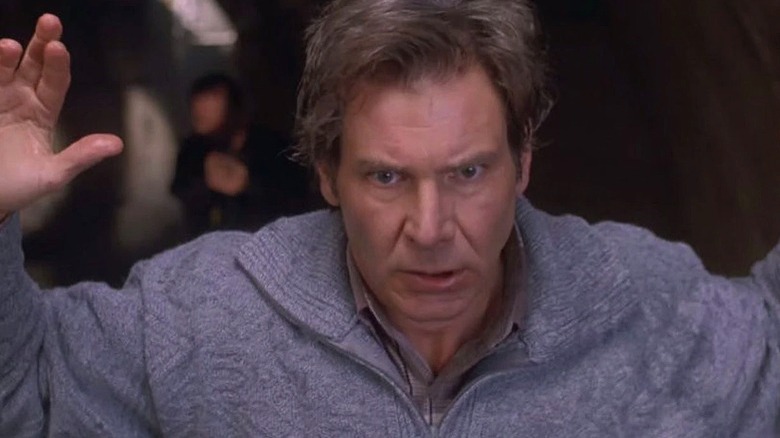
1993's "The Fugitive" is a brick outhouse of a thriller, a stable piece of blockbuster history based on a TV series that feels more and more melodramatic as the years go by. But this Harrison Ford-led showpiece still holds up to today's cynical viewership, with Tommy Lee Jones as a U.S. Marshal who doesn't fall all the way down into the traps of exhausted copaganda nonsense.
A wealth of terrific small performances help build this flick's structure, including a brief but strong early Jane Lynch performance and a turn from the ever-reliable Joe Pantoliano. But it's Andreas Katsulas, not seen until midway through the movie, who serves as a terrifying foil to Ford's desperate doctor. The only groaner in this classic crime drama is an unavoidable piece of its plot. Dr. Richard Kimble's wife gets fridged hard in the first seconds of the movie, driving Kimble to his pursuit of vengeance. In the end, the crime isn't about Mrs. Kimble, but the reveal is still cynical, richly emotional stuff.
Full Metal Jacket
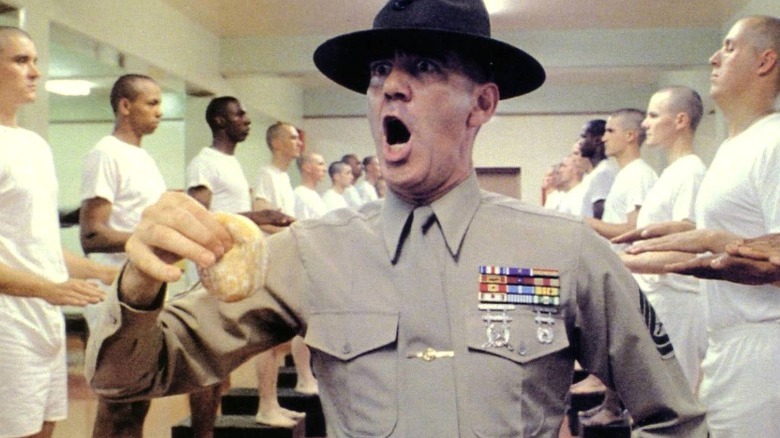
When revisiting Stanley Kubrick's filmography, it's shocking that his classic diatribe on the Vietnam War was his second-to-last film. "Full Metal Jacket" opens with a handful of raw Marine recruits who are about to have their humanity efficiently stripped away by their brutal drill sergeant. As Drill Instructor Hartman, R. Lee Ermey does his job too well, seeing nothing wrong with turning these recruits on each other, even when Vincent D'Onofrio's soldier can't hold up his end of things and slips ceaselessly into madness.
As Private Leonard "Gomer Pyle" Lawrence, D'Onofrio is the specter that haunts the movie's abrupt second half. He was flawed to the point of destruction, but he was also the goal, as Matthew Modine's Joker meets soldiers who have come to embrace the atrocity of Vietnam. Heartless sociopath Animal Mother is what Pyle was destined to become. Hell, he's what all these once-innocent kids were destined to become. "Full Metal Jacket" is the boot camp counterpart to "Apocalypse Now," showing the bloody gears that move the war machine that our country thrives on.
Goodfellas
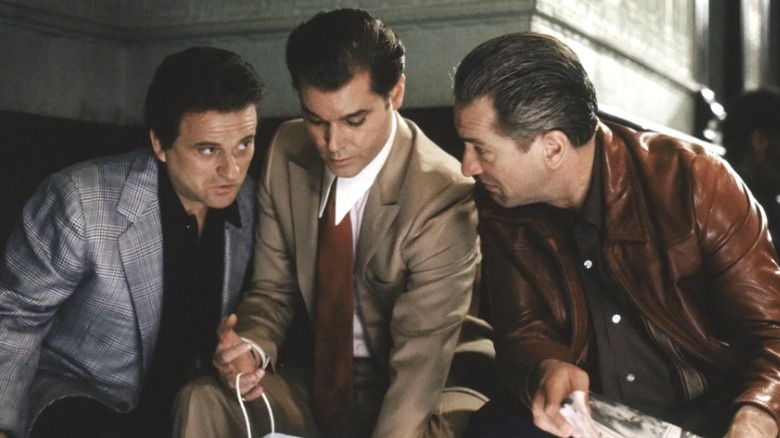
When Martin Scorsese is directing, you're in for something remarkable. He has a gift for creating taut, emotionally fraught thrillers anchored by masterful performances. Like Francis Ford Coppola, his name is synonymous with mob dramas. Also like Coppola, Scorsese's filmography proves he's adept at many other genres. Still, it's those crime movies that made him famous among general audiences, and "Goodfellas" is an unmissable classic of the genre.
Unlike "The Godfather," which is a fictional pastiche of wise guy history, "Goodfellas" is based on the life of mobster-turned-informant Henry Hill. Ray Liotta inhabits the role like a Saville Row suit, serving as our guide through the world of the Lucchese crime family, one of the Five Families that make up the core of the United States' Mafia network. He's purposefully overshadowed by Robert De Niro and Joe Pesci, especially once Henry Hill's illicit but rich life gradually crumbles around him. It's the film that codified Joe Pesci's onscreen persona, and for good reason. His unreliable moods keep the movie whiplash tight. This is not one to be missed.
The Hidden Fortress
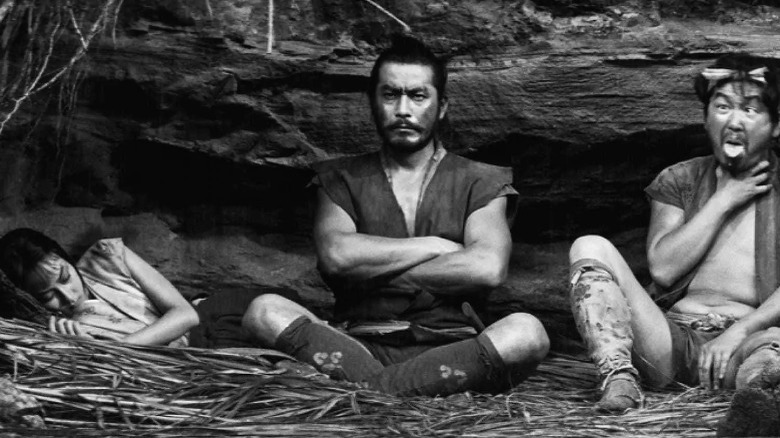
Akira Kurosawa made action movies that also happen to be some of the greatest classics of cinema. When you see black and white screenshots from his work and worry that you're in for a boring ride through film history, trust us. You're not. "The Hidden Fortress" is mostly known for inspiring George Lucas, with its two frazzled and not particularly bright peasants, Tahei and Matashichi, who served as the basis for C-3PO and R2-D2.
Tahei and Matashichi stumble into a protection scheme cobbled up by Toshiro Mifune as Rokurota, a general in the service of the Akizuki daimyo who is trying to smuggle a princess to safety. This should all sound pretty familiar to "Star Wars" fans, but "The Hidden Fortress" is funnier, keeping the focus on the two hapless dorks who're just trying to make a buck. If anything, "Spaceballs" is closer to actually depicting the dynamic our leads share, although their interest in the smuggled princess, Yuki, is less than amusing these days.
House
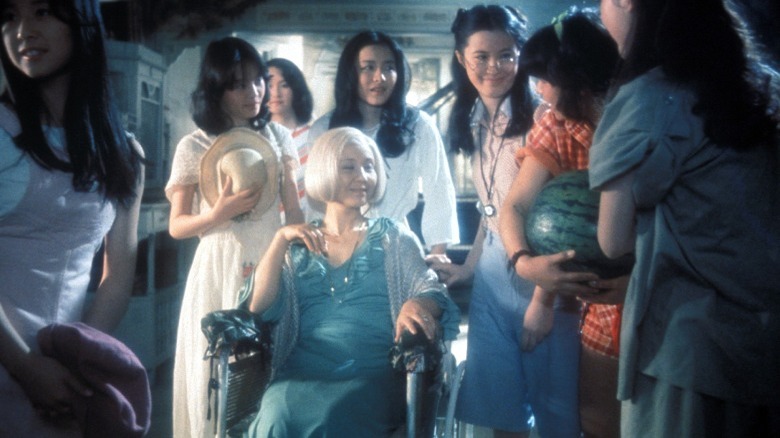
Not to be confused with the '80s horror comedy, "House" is a 1977 cult film from Japan about a young girl who, with several of her classmates, visits her aunt. However, her aunt has really bad taste in home ownership, and she's not on the firmest of foundations mentally, either. As it turns out, there's a reason for Auntie's unusual behavior, and these poor girls are in for the worst slumber party of their lives, one that might never end.
This "House" is astoundingly weird, a riot of color and absurdity blended with enough blood to make Tom Savini sit up and take notice. The effects are deliberately unrealistic, placing the audience in the imaginative mind of a young girl. A lesser-known Japanese gem for decades, this film didn't make it west until 2009. Fans of Guillermo del Toro and Sam Raimi should sit down and give this film a chance.
Howl's Moving Castle
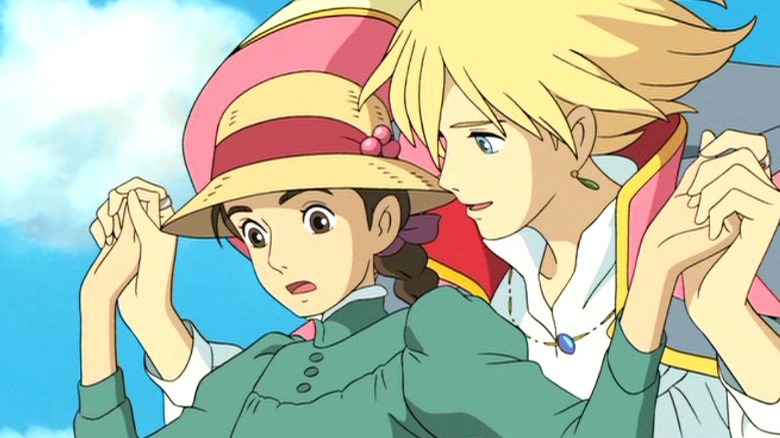
Go ahead. Try to name a more comforting combo than Studio Ghibli and Diana Wynne Jones. "Howl's Moving Castle" adapts Jones' 1986 novel with an eye for more than just romance. It's also Miyazaki's chance to return to the same anti-war themes that fueled the more ecologically-minded "Nausicaa," only here the point is pure pacifism, along with some ruminations on the human ability to change and grow. Even better, amidst it all is the beautiful, living scenery that Studio Ghibli films specialize in.
Howl is a selfish fop, but he's secretly a damn good wizard. Sophie is a hatter who runs afoul of a witch who's pretty much always in a mood. Between them is the best fire elemental there ever was, Calcifer, whose threat that your bacon will burn forever is a real terror in a world where the stuff runs about six bucks a pack. The characters are lovable and real in this high fantasy world; if you don't come out of this movie wanting to give old doggie Heen a squish, I don't want to know you.
In The Heat Of The Night
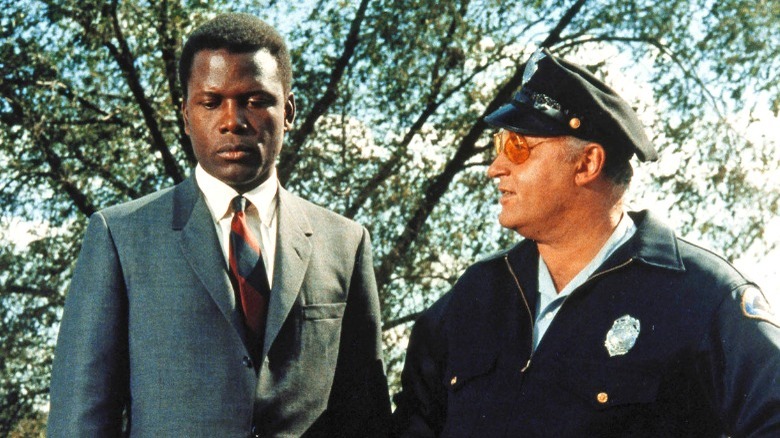
Sydney Poitier may be gone, but his legacy is indelible. "In the Heat of the Night" is a film of many firsts: the first film to shoot Black skin in correct lighting, and the first film to show a Black man physically and metaphorically striking back against the racism and bigotry that's forged the borders of Black American life. Philadelphia homicide detective Virgil Tibbs isn't enthused about chasing a case in the heart of still-burning Mississippi. Local police chief and lifelong racist Gillespie isn't thrilled about the idea, either. But Poitier and Rod Steiger play off of each other so well, building from fury to grudging respect, that this purposefully uncomfortable film is also a joy to watch.
It's also a joy to listen to. "In the Heat of the Night" boasts a soundtrack by Quincy Jones, with jazz-blues genius Ray Charles belting out the title theme. It's a score that hints at the fact that the racist old guard will one day be doomed to history. We're not there yet, but Mr. Tibbs lit a lamppost that helps keep that hope strong.
Jurassic Park
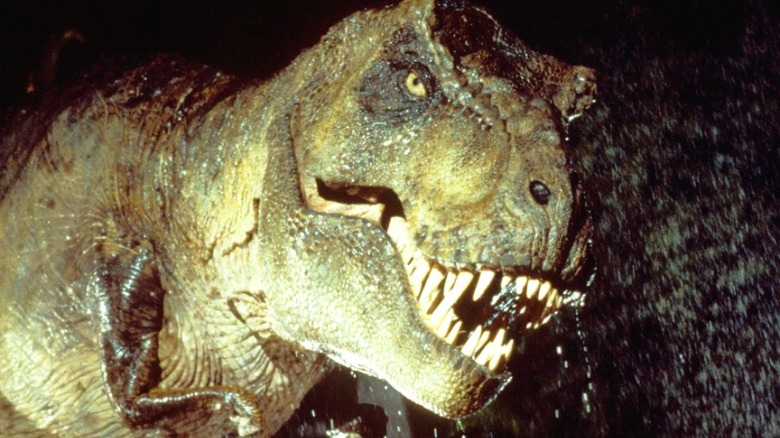
Imagine being lucky enough to be a kid in 1993, the year "Jurassic Park" stormed its way into theaters — luckier yet if you had enough pocket money to go see this wondrous film at least three times on the big screen. It's astonishing how well its visuals hold up today, a testament to the staying power of practical effects when matched with an appropriate amount of cutting-edge CGI. The spectacle is why we're here, but underpinning the seemingly real-life dinosaurs is a pretty meaty plot that allows some great actors to cut loose.
"Jurassic Park" returned Jeff Goldblum to his status as an odd sex symbol after a few years of a flagging career. The lusty Ian Malcolm proved so popular that Michael Crichton, author of the original novel, had to figure out a major retcon so that Ian could lead the sequels. The rest of the cast is also terrific, but let's face it, we're really here for that big, beautiful T-Rex.
The Last Duel
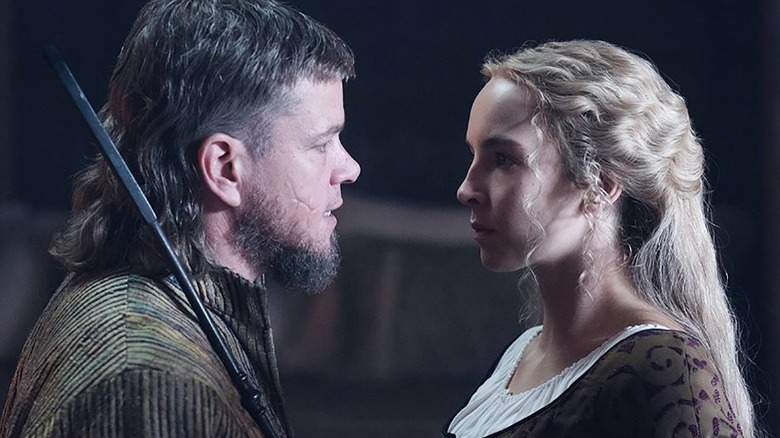
Watch this movie, or Ridley Scott will start taking hostages. In his defense, "The Last Duel" really is "Rashomon"-levels of intricate, with great performances and an almost gasping sense of emotion. Part of what worked against the film's chances at widespread popularity is, unfortunately, unavoidable. It's a movie about rape. Worse, the rape scene is brutal and unflinching, and replayed multiple times. The film's indictment of misogyny is muted by the fact that, with all due respect, we're very tired of seeing this kind of hurt inflicted for the sake of "veracity."
When that exhaustion is surpassed, "The Last Duel" is as gritty and sumptuous and vital as Ridley's previous medieval epic, "Kingdom of Heaven." The historical tale here is a good one. It's an examination of masculinity, pride, and survival. It also subverts "Rashomon," in that there is one correct interpretation of events. For all the movie's flaws when it comes to its depiction of Marguerite, her version of the story is explicitly meant to be the truth.
Lethal Weapon
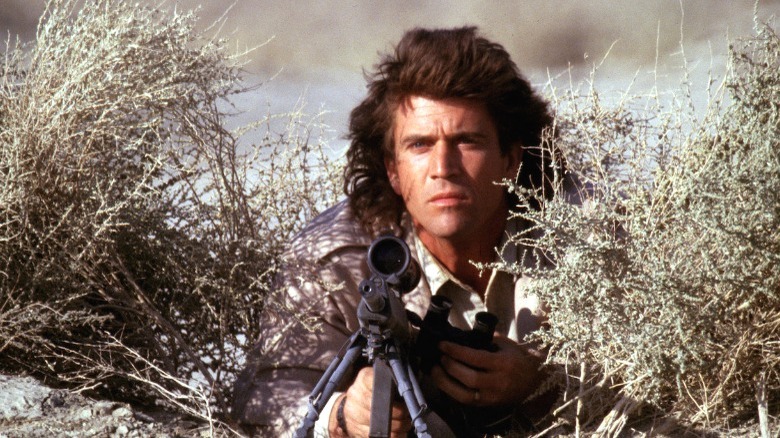
I don't know if Mel Gibson still gets royalty checks for the original "Lethal Weapon," so I understand any viewer's hesitancy to watch it today. That said, this Richard Donner-directed bullet train is still a must-see for lovers of manly action movies. It's a hot slice of '80s beef, extra thick, and both Danny Glover and the ever-eccentric Gary Busey turn in laudable performances. Glover is exhausted with everything and everyone, serving as our current mood incarnate. Busey is Busey; you know you're getting some weird stuff when he shows up.
There's a plot about murder and the drug trade that winds up with some unsavory ties to Martin Riggs' military past, but the highlight of "Lethal Weapon" is really the snappy, still-fresh dialogue. Donner matches the Shane Black script with his signature fast-paced style, and it still looks pretty good for a 35-year-old film. "Lethal Weapon" is a top-shelf action movie for a reason.
The Lord Of The Rings Trilogy
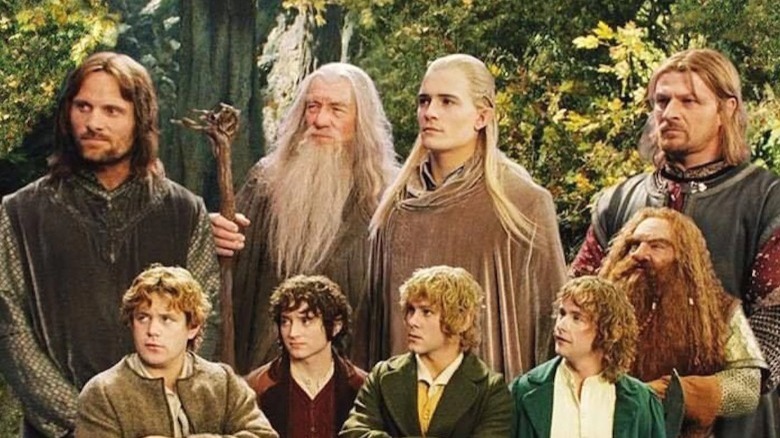
Pick your flavor: the theatrical cuts or the super-sized "Extended Editions." Either way, HBO Max has the entire set of "The Lord of the Rings" films ready for a full weekend at home on the couch. You don't really need more coaxing, do you? Peter Jackson's trilogy is the gold standard for cinematic fantasy epics, with glorious effects, music, cinematography, and lovingly hand-made props. It's an adaptation created for fans, by fans, and though it's not without flaws, it does have Sir Christopher Lee as Saruman the White.
How "The Fellowship of the Ring" creates a mini-boss out of the Uruk-hai Lurtz is an annoyance on par with how Michael Bay insists on taking Optimus Prime's facial shield off, but cinema is a different animal than literature, and most of these complaints can be waved off. The minor changes may add up for the most persnickety Tolkien fans, but the production shows such love for Middle-earth that we can't be mean about it. Shut up about the eagles taking the ring to Mordor, though. Please.
The Matrix
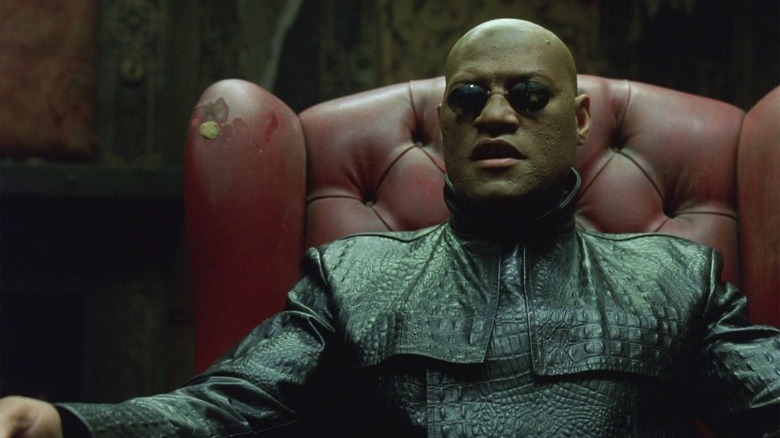
Like "The Lord of the Rings," the entire "Matrix" saga is available to stream on HBO Max. Though opinions about the sequels are divided, they remain entertaining watches. However, science fiction fans both old and new can't miss the original 1999 film. With stunning visuals, grim '90s cyber aesthetic, and ponderous philosophical themes, it's a film that tries hard to communicate new ideas, and it mostly succeeds.
The plot hardly needs a reintroduction. It's another hero's journey, this time starring Keanu Reeves. The Messianic expectations that he has to wrangle is confusing and upsetting, making Neo a regular human first and foremost. It's that same humanity, that same diversity of belief and thought and appearance, that the machines are trying to wipe off the face of the Earth. But mindless, hateful uniformity will destroy the machines too, as the later films explore. Yes, in between the gender commentary and philosophical musings, "The Matrix" is also pretty anti-capitalistic — fighting against the establishment has never looked this good.
Memento
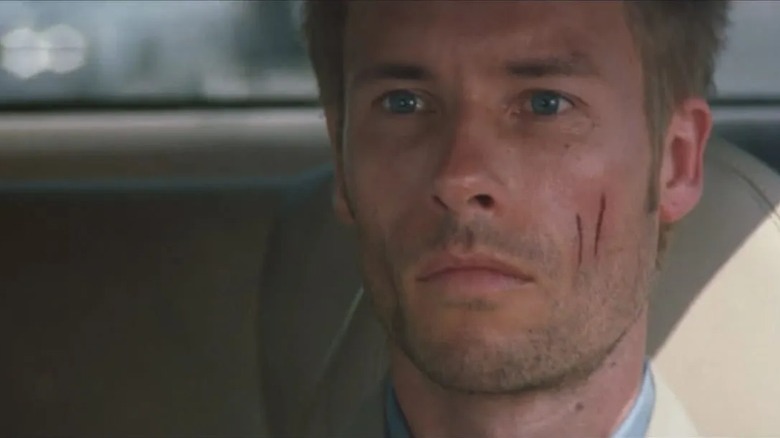
Before Christopher Nolan was earning studios enough money that he could blow up a Boeing 747 without anyone batting an eye (via Total Film), he focused on small, taut thrillers that relied on his actors to bring his scripts to life. "Memento," based on a story by his younger brother, Jonathan, is the leanest and meanest example of what I'm talking about. There are no massive set pieces, and no groundbreaking effects. Instead, what "Memento" offers is a two-track storyline told both chronologically and in reverse, featuring Guy Pearce at his most unsettling and strained.
The anterograde amnesia displayed by Pearce's character, Leonard Shelby, is regarded as one of the disorder's most accurate cinematic portrayals. How it fits into Nolan's script is so devious that Raymond Chandler himself would sit up in his grave and applaud. Even in its obtuse complexity, the emotional stakes that Shelby faces are clear, and that complexity is part of Leonard's ultimate tragedy.
Mildred Pierce
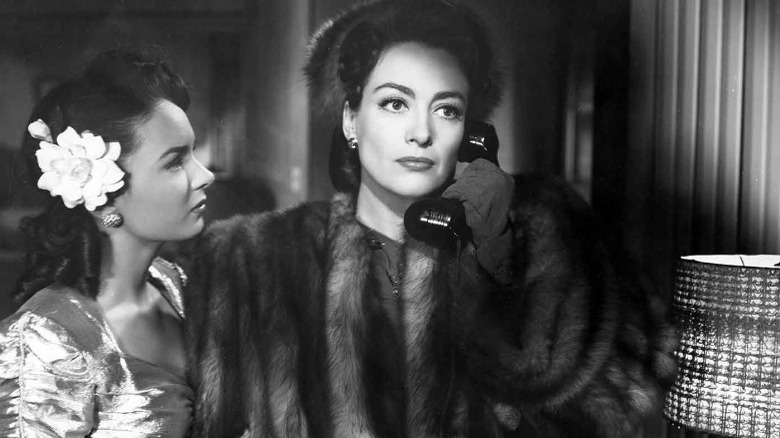
Every film fan should watch at least one Joan Crawford classic, and for my money, "Mildred Pierce" is the most fun. A rip-roaring, old-timey "Law & Order" episode writ large, it's full of great, not quite over-the-top performances. Crawford's 1945 film adds in a murder plot that the original novel lacks, pushing the tough family dynamic into near-melodramatic excess, but damn if it isn't a good time.
Mildred is a humble mom who turns to shilling pastries — not a euphemism — to make enough money to support her two daughters after an acrimonious divorce. Her youngest, Kay, is a tomboy with a Victorian-era health bar and no sense of mortality. Veda is the antecedent of today's Tik-Tok influencers. She wants it all, she wants it now, and God help the poor sap who makes her feel less than middle-class. That includes Mommy dearest, although Mildred keeps trying to convince herself that she'll someday buy Veda's love. Naturally, it all builds up to murder. "Mildred Pierce" is a popcorn classic, and once again proves that black and white doesn't mean dull and dreary.
The Mummy
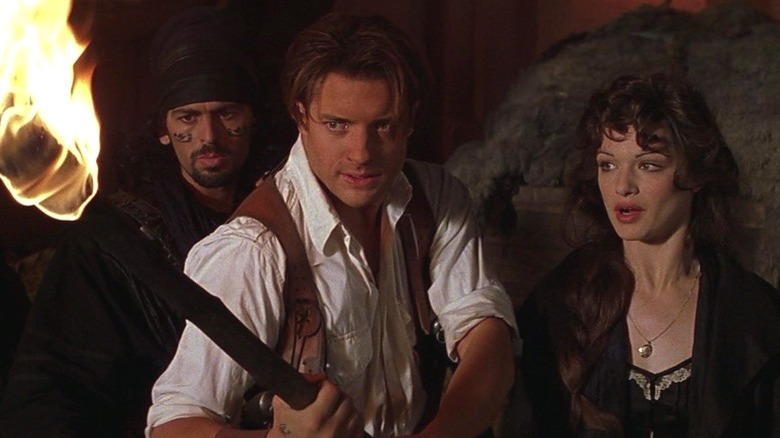
It's good to have Brendan Fraser back. The beloved actor has been having a great few years, and it's what he deserves for being such a big part of our younger lives. Although "George of the Jungle" was the turning point for action-loving girls, the blockbuster franchise "The Mummy" took the female gaze and amplified it, giving Rachel Weisz a shot with history's best himbo hero — oh, and the sultry Oded Fehr is not to be missed, either.
The film is an homage to films like "Raiders of the Lost Ark," with all the loving historical pulp that implies, but its plot is solid in its own right. For discerning viewers who went through an Egyptologist phase in their teens, yeah, "The Mummy" and its sequels aren't going to pass the sniff test. But they're not meant to; the original film is a bombastic update of the equally fantastical Karloff classic. The spectacle is glorious, and the performances are great fun. As Roger Ebert said in the Chicago Sun-Times, you'll be "cheered by nearly every minute of it."
My Cousin Vinny
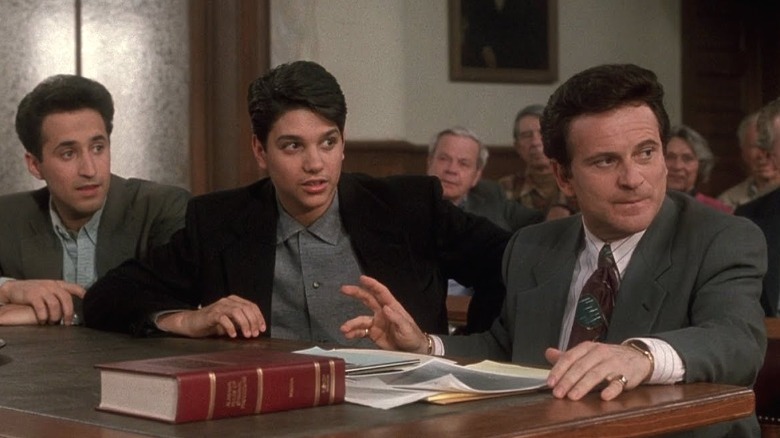
The legal profession can be poorly but emotionally summed up by two films, "The Devil's Advocate," and "My Cousin Vinny." Of the two, Joe Pesci's smart, streetwise take on legalese is the more accurate, despite lacking the Devil himself. This 1992 Academy Award-winning comedy is a favorite of real-life lawyers, with a sassy but realistic view on how cross-examination works in the real world.
Pesci is backed up by Marisa Tomei, who steals the movie from him at multiple points, only to gracefully hand it back to him for some more delightful scenery chewing. Pesci was playing mostly mob heavies at this point in his career, making Vinny into both a subversion of typecasting and a reminder that the dude can act. The only flaw is that Vinny's young cousin, played by Ralph Macchio, doesn't get a whole lot to do except vibrate nervously. "My Cousin Vinny" is also the legendary Fred Gwynne's final movie, and he offers a great performance as the trial judge.
My Neighbor Totoro
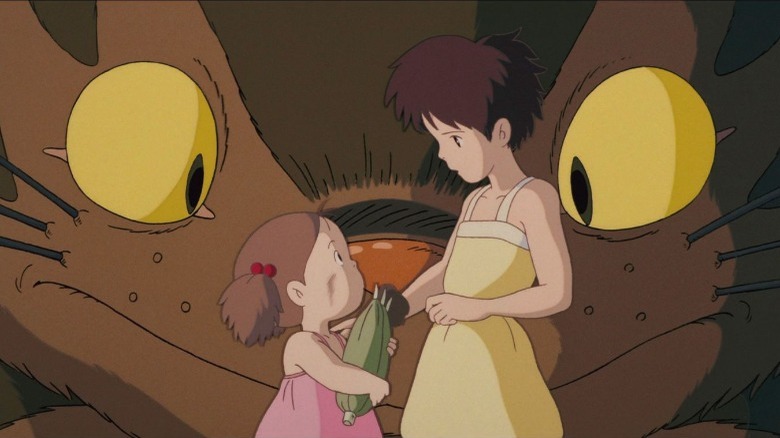
Throughout our lives, we develop reliable panaceas to combat a bad day. Takeout from a favorite restaurant. A bar of really good chocolate. Locking ourselves on the couch with the same plush toy we've had for 20-plus years and a favorite movie. "My Neighbor Totoro" should be one of those films, if it somehow isn't already.
Studio Ghibli can go from warming your heart to stomping on it without missing a beat, but "My Neighbor Totoro" only does the former. There are a few brief but tense moments as we wonder if these precious kids will get to see their mom again, but the wonderment that fuels their imagination and the sights they see, including the many-legged Catbus and the huge and huggable Totoro, are too comforting for the spookiness to last. It's a movie that remains perfect for both young viewers and the young at heart.
Nausicaa Of The Valley Of Wind
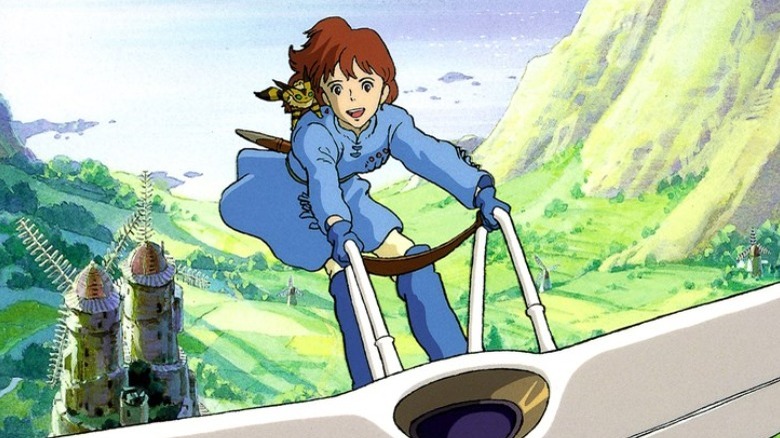
1984's "Nausicaa of the Valley of Wind" is an early masterpiece from director Hayao Miyazaki. It's only the second of his feature films, and was created before the founding of Studio Ghibli. It's also the movie that was so mangled on its first import that it almost derailed Disney's attempts to distribute "Princess Mononoke" and later Ghibli films. Thankfully, HBO Max has the much better 2003 rerelease, which is fully restored and has a decent dub for the subtitle-averse.
"Nausicaa" is one of Miyazaki's big soapbox movies, a wrenching tribute to his ecological values and his loathing of war. It's colorful and beautiful and sad. Communication and kindness change the world in "Nausicaa." Our hero isn't some relentless warrior, but a young woman who seeks to understand the twisted jungles on their own terms. There's also a fox-squirrel, which is one of the cutest fantasy animals to ever populate a movie. You'll buy at least three plushies of it.
No Country For Old Men
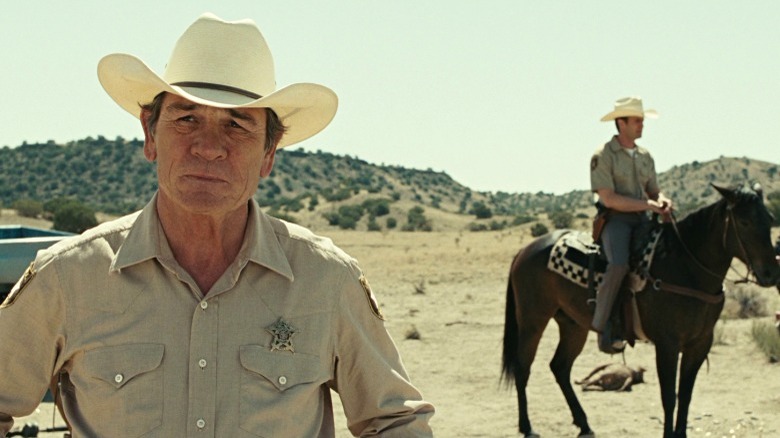
The Coen brothers have a fascination with the American western, blending it with various other genres with surprising success. "No Country for Old Men" is, as I've called it before, the last chronological western, taking place at the crossroads of the West that was and the modern world. However, it's actually about the futility of fighting against the darkest parts of our human nature, even as it underlines that there's value and grace in such defiance.
Javier Bardem made his name among American audiences with this flick, with that god awful but unsettling haircut and his eerie performance. Similarly, "No Country for Old Men" led to a full career resurgence for Josh Brolin, following his too-brief teen dream era. Together, they're both halves of the same coin: death, and the struggle to live. Yet, Tommy Lee Jones is the closest thing this ensemble has to a main character, and it's his morals and memories that frame the tragedy that unfolds in 1980's Texas.
North By Northwest
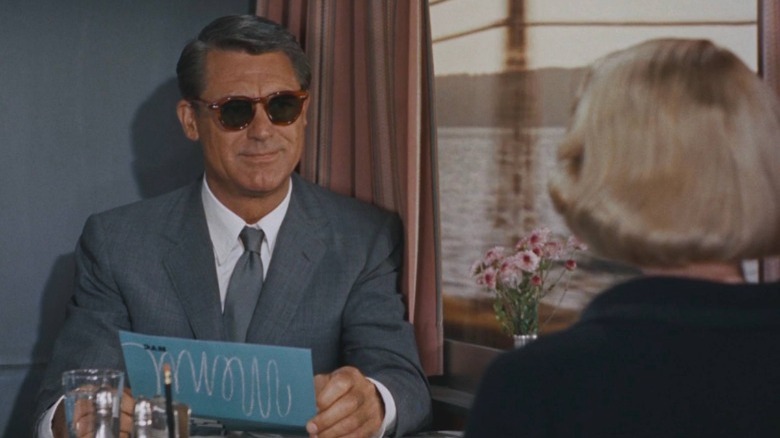
Alfred Hitchcock's "North by Northwest" is a potboiler of a movie that tangles up Cary Grant, who plays a poor schmuck named Roger, in an affair of mistaken identity that takes a turn for the murderous and mischievous. Savvy film fans will recognize homages to this film in movies like "The Big Lebowski," but "North by Northwest" is a taut affair that's well worth watching on its own, and that sets a high standard for noir thrillers.
Roger's life quickly turns into a madhouse after he's mistaken for a secret agent who, in one of the movie's many twists, doesn't even exist. Getting his life back in order will be far from easy, and eventually he has little choice but to play along in a high-stakes spy game. It's the movie that gave us that terrific shot of Cary Grant being chased by a crop duster, a sequence so frenetic that, for a second, viewers feel like the thing is going to come for us next.
Paddington 2
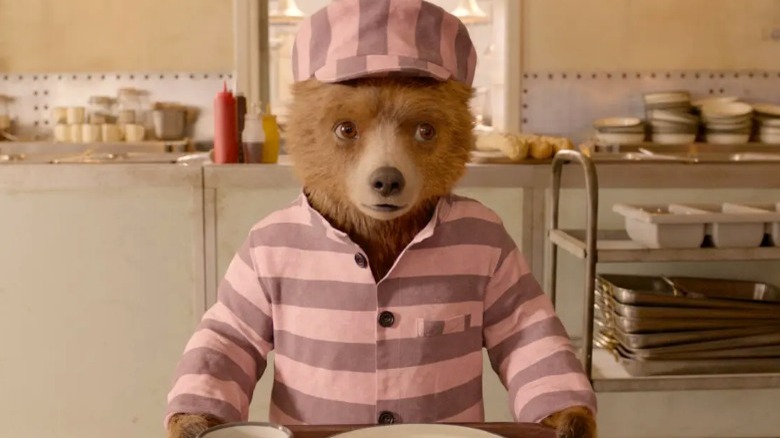
"Paddington 2" is a cinematic masterpiece. I don't care how grumpy you are about that fact. We all have to accept it. It's the most charming movie about a bear in a hat that will ever exist, at least until the third movie in the franchise comes out. It's also a pastiche of Hitchcock-flavored noir, with the eternally gentle Paddington framed for a theft this squeezable little poogly-woogly could never commit. And so, our hero must set out to prove his innocence and save his auntie's birthday in the process.
The entire movie is a joy. Not a single person involved phones it in. Hugh Grant, who plays the detestable thief whose antics put Paddington in the clink, thinks this movie is his best work. He's right. "Paddington 2" is that most derided genre, a kids' movie sequel, and it's so much more than that. It's art. It's joy. It's the best night in you can have. Put on your comfiest pajamas and let your inner child enjoy the show.
Pride & Prejudice
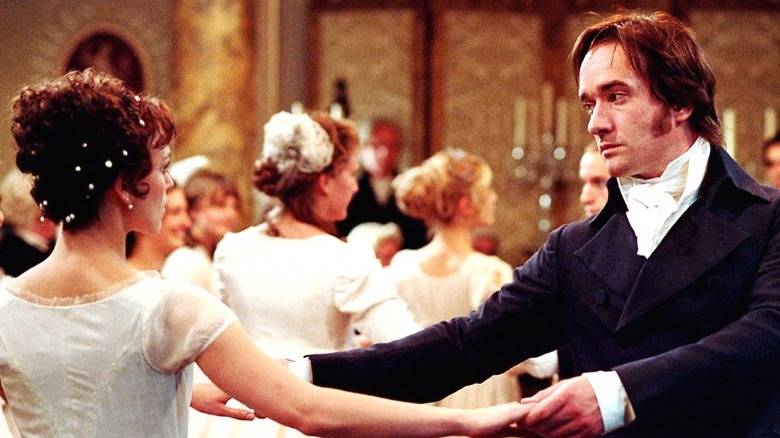
2005's "Pride & Prejudice" may lack the emotional turbulence of Colin Firth (for that, check out the BBC's 1995 miniseries), but this one has Judi Dench and Kiera Knightley in a much earthier version of Austen's classic romance. It also borrows from more modern attitudes towards these novels. "Clueless," an adaptation of Austen's "Emma," has a much bigger influence on the film than you'd think. "Pride & Prejudice" doesn't move the story to a strange new time period, but its lively realism and intricate emotional tangles are subtly modernized, reminding us that these stories are timeless.
The core of the novel remains intact. The Bennet girls need to be married off to ensure their futures, but Elizabeth isn't sold on the concept. She's also not sold on Mr. Darcy, who starts off, of course, as a rich boy turd. He gets better, Elizabeth falls in love, and a great many communications are bungled — and sorted out — along the way. The plot is well-known, but the performances here remain some of the best.
Reservoir Dogs
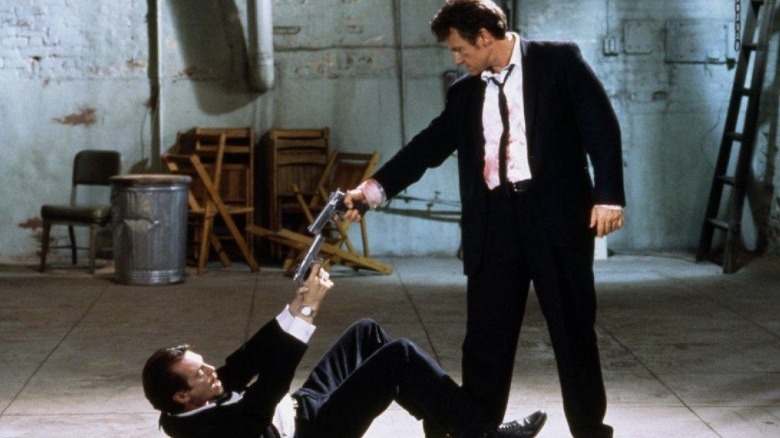
Quentin Tarantino's debut feature, "Reservoir Dogs," is a sleek hour-and-a-half long masterclass in tension and dialogue. It may be one of the finest independent films ever made. Opinions may vary about some of Tarantino's later works, but his first film is unmissable. You'll never forget the sight of Michael Madsen boogieing down to Stealers Wheel's "Stuck in the Middle with You," blade in hand while his prisoner trembles.
A heist film drenched in a bucket of blood, "Reservoir Dogs" tests its audience right away with its lengthy diner sequence. Attitude and dialogue establish the eight main characters, who are much deeper than the fake names they're given. Moments later, the heist they gathered to accomplish goes to hell, and the rest of the movie ricochets off from there. It's a specific kind of movie, a character drama wrapped in noir plot beats. The soundtrack is a collection of on-fire '70s classics, too, with Harry Nilsson's "Coconut" destined to trap itself in your head for the rest of the week.
Romancing The Stone
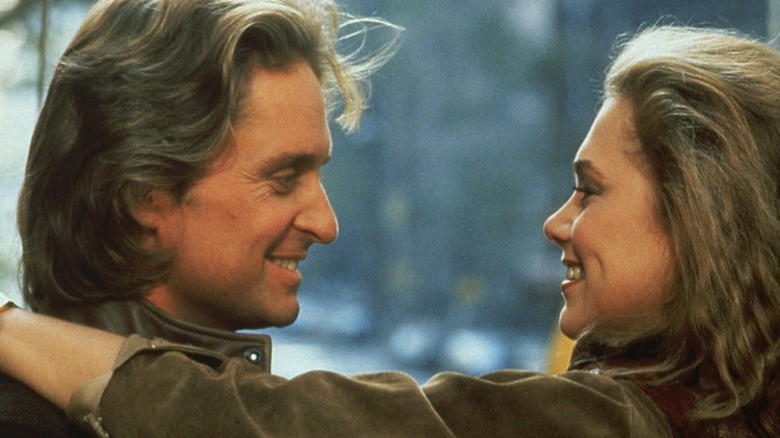
Robert Zemeckis didn't always make films that relied on experimental special effects. Tucked away in the earliest section of his filmography is "Romancing the Stone," a cute treat of a movie with a power trio in charge. Kathleen Turner plays a romance novelist who gets to become her own main character. Michael Douglas, in his prime, is a studly hunter and adventurer who knows all the right, cheesy ways to pay homage to Dr. Jones. Danny DeVito is our starter villain, a smuggler who puts everyone in the way of a diabolical Colombian military officer.
"Romancing the Stone" is a slice of strawberry cheesecake: nothing too fancy, but rich enough to be a pleasure. It's an honest-to-god good movie with a romance novel ending, and the sort of flick you put on when you're home alone and don't want to share your dessert.
Seven Samurai
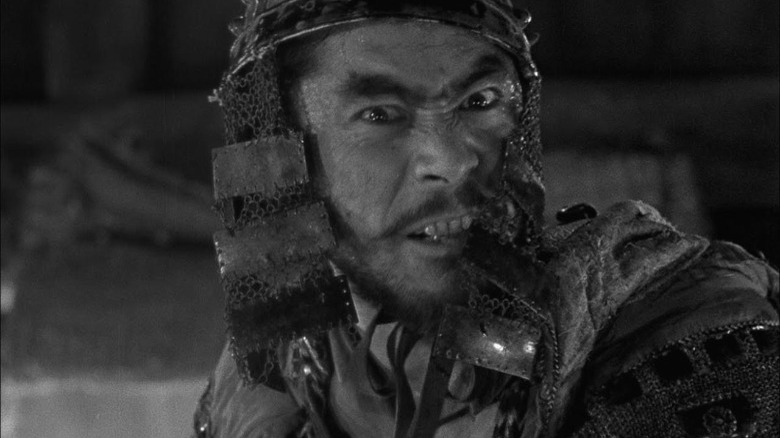
"Seven Samurai" is arguably Akira Kurosawa's best-known film. Like "The Hidden Fortress," this 1954 samurai drama is famous for spawning western remakes and countless homages. "The Magnificent Seven," for example, replaces Toshiro Mifune and the rest with Yul Brynner and Steve McQueen. Yet for as excellent as that western is, it pales in direct comparison to its ancestor.
It's no surprise that "Seven Samurai" translated so well into other genres. The plot is human stuff, relying on the tenacity of our spirits when the odds are against us. The samurai are that in name only; mostly they're older, hungry men, some of whom have turned ronin. Yet, despite the scant rewards and dangerous odds, they do their best for the impoverished village in their care. It's a movie that drifts from wry to melancholy in perfect harmony. If you're a fan of "The Mandalorian" and Din Djarin's hapless life as a mercenary in season 1, you need to experience this movie.
The Shawshank Redemption
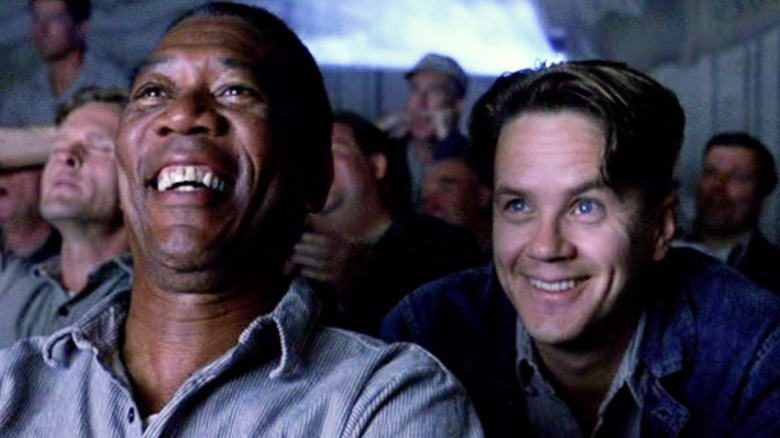
Before Frank Darabont, adaptations of Stephen King's work ranged from cheesily enjoyable, to awful, to the very rare standout. In defiance of tradition, all three of Darabont's King adaptations are excellent. "The Shawshank Redemption" is a film that feels like some underrated indie classic, without presumption or grandstanding, and with plenty of moments of quiet triumph. It actually was underrated, once upon a time. It bombed at theaters, and the critics were hesitant to embrace it. Yet, somewhere along the way, it connected. Today, it's recognized as one of the greatest films of all time.
The saga of Red and Andy, who struggle to keep their spirits alive as the prison system crushes them down, grips viewers across every demographic spectrum. The film may be about a 1947 murder and the brutal prison system that's barely evolved since, but the people feel alive and relatable. They're not perfect. Many of them belong in prison, at least for a time. But underneath the sorrow and the drama is the eternal question about whether or not we're actually rehabilitating anyone in prison, or simply inflicting a lifetime of suffering on society's transgressors.
The Shining
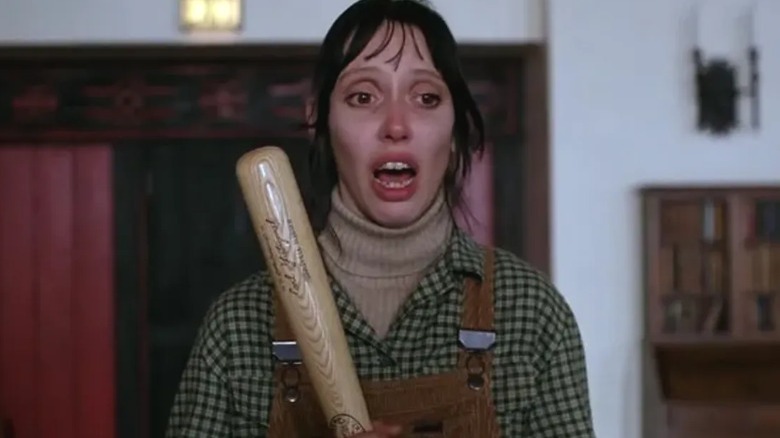
Stephen King's opinion of Kubrick's adaptation of "The Shining" may have evolved over the years, but to horror fans, it was an instant classic. It may feel a bit cliched now, with pieces of the Overlook Hotel hauled out for countless homages and "Simpsons" gags in the decades since its release, but the film remains a gold standard of horror and the supreme haunted house movie. Its ghosts aren't just real. They're enslaved to whatever cruel force fuels this cursed hotel.
The much later sequel, "Doctor Sleep," doesn't answer any questions about what specifically is wrong with the Overlook. It doesn't matter. The meat is in the havoc it wreaks on human minds. Here is where King's issue with Kubrick's take has to be acknowledged as a fair one. The book made it clear that Jack Torrence was flawed, but loving. He simply had no chance against demonic peer pressure, or the specter of his life-long alcoholism. However, in Kubrick's version, Jack comes off as fairly irredeemable from the start.
Solaris
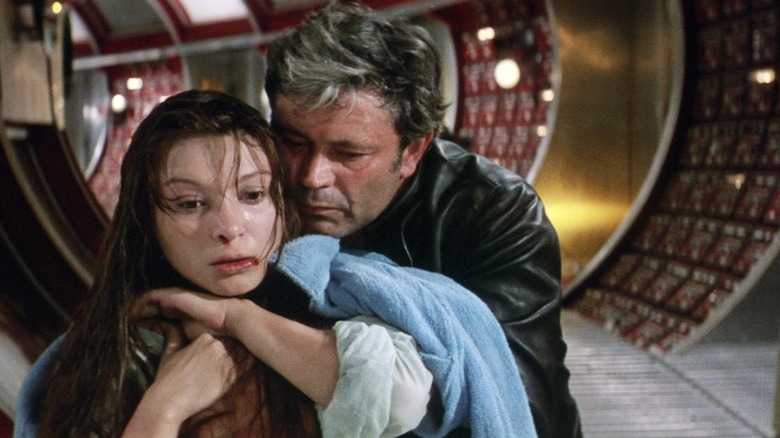
Steven Soderbergh's version of "Solaris" is fine. It has a wealth of good performances and beautiful effects. It's fine. But HBO Max has Tarkovsky's 1972 adaptation of Stanislaw Lem's novel, and that's the one a science fiction fan should start with. For diehard Lem fans, neither adaptation can depict the mystery of the planet Solaris and what it signifies accurately; much of what's going on in the story is cerebral and emotional. Here, important plot beats are conveyed subtly, often through color hues or a change in expression.
"Solaris" is the best that can be done with Lem's beautifully strange novel, translating its big philosophical themes into smaller character studies. It is also long, coming in at nearly three hours, and is full of Tarkovsky's glacial "love it or leave the theater" pacing. It pays off, leaving a viewer with plenty of time to examine the chromatic clues the cinematographer leaves us to help follow the plot.
Spirited Away
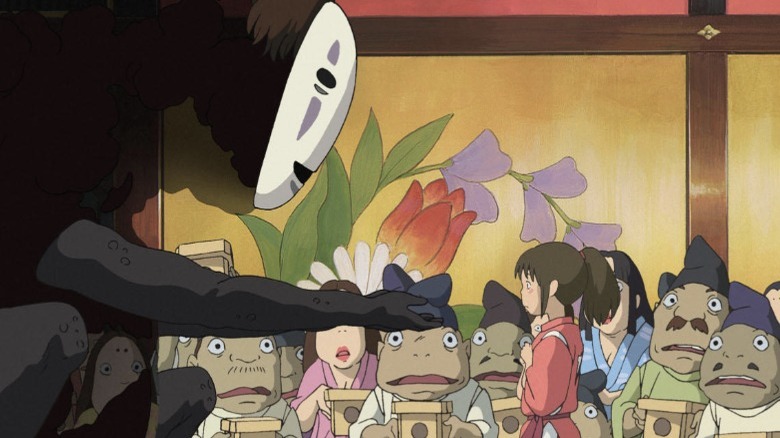
Given that HBO Max has a subsection devoted to Studio Ghibli, maybe it would be easier to tell viewers to go and work their way through everything on the list. However, then we'd miss the chance to talk about Joe Hisashi's triumphant score for "Spirited Away," and the way his orchestra spirals up when the mysterious Haku remembers who he really is. We'd miss talking about No-Face and the sumptuously animated buffet the yokai bathhouse puts on to satisfy him. And the Radish Spirit. I don't know what's up with you, sumo radish dude, but I love you.
"Spirited Away" is gorgeous to look at, and the plot is imaginative enough to satisfy almost any age group. For parents looking for a classic to share with their kids, this one is probably best for the 10 and up group; there are a few moments and plot twists that are a little scarier than what you'll find in the gentler "Totoro."
The Suicide Squad
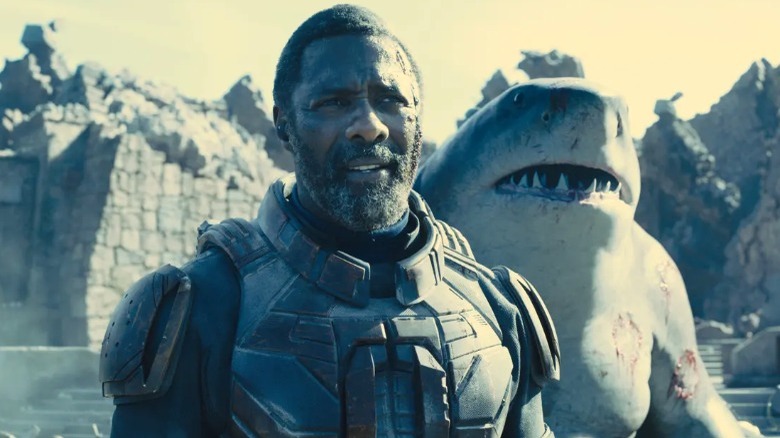
With "Peacemaker" occupying the same unhinged but critically acclaimed niche as fellow HBO Max original series "Doom Patrol," it's time to rewatch the film that first gave James Gunn the keys to the DC universe. "The Suicide Squad" is bloody good fun, uninterested in keeping the fourth wall intact and fully aware of how crap its protagonists are as people. We end up loving them anyway. Harley Quinn emerges as the near-hero as the Squad's operation falls apart, but the heart of the movie belongs to King Shark, while Polka-Dot Man takes its soul.
It's a hell of a timeline we live in when King Shark is the best thing in a movie, but this daffy, violent, yet unusually touching free spirit is just so squeezable. Honestly, the whole cast deserves a spotlight. They're all great, they all bring the big emotions when terrible things happen — they're the Suicide Squad, not the Go Home and Order Pizza Squad — and the plot is absurd. What a great flick.
Superman
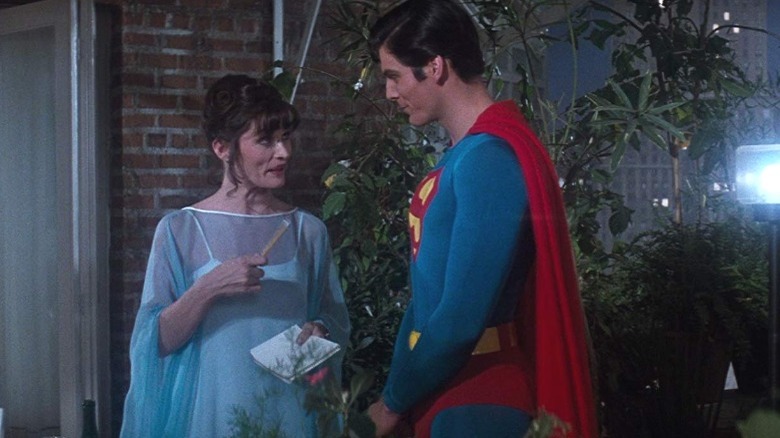
Hang on, Henry Cavill fans. No shade to today's Superman, but it's a fact that Christopher Reeve set the bar for portrayals of Clark Kent very, very high back in 1978. It's not a competition, it's about the evolution of our society. The Superman we needed on the cusp of the '80s embodied post-war optimism, kindness, and goofy charm. Reeve's Clark was out of date in all the right ways, and he taught all of us that not only is it right to stand up for what we believed in, but also that violence isn't the only tool we can use to do so. Cavill's take is sometimes the same, but we're living in a tough time, and his Superman has a different set of challenges to face.
Richard Donner's movie and its cutting-edge effects still hold up today, as long as you're willing to make a few allowances for the time. Keen eyes will spot occasional flaws in the composition brought forth by high-definition televisions. It can't be helped, but it should be ignored. Given the tech that was available to the filmmaker, this film remains vibrant, radiating a veracity that's still tough to match. Special marks to Gene Hackman, who's still my favorite Lex Luthor.
The Thin Man
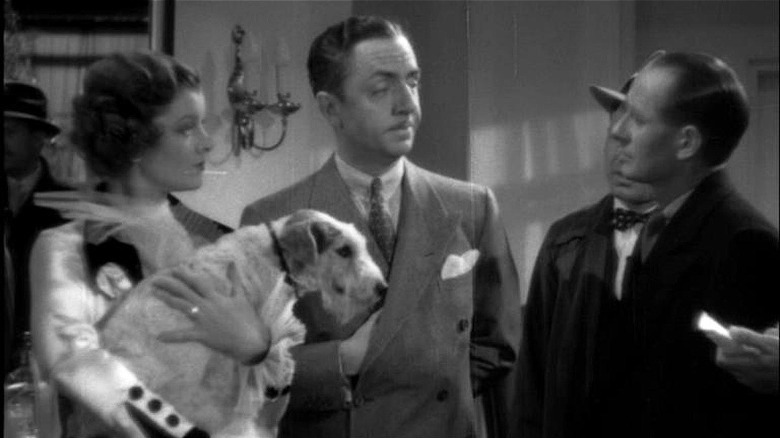
Before "Perry Mason" and "Spenser: For Hire," there was Nick and Nora Charles. Dashiell Hammett invented the bickering, whip-smart couple about five years after he gave the world Sam Spade and his hunt for the Maltese Falcon. Nick and Nora are the template for multiple generations of power couples that fight their way to the prize; you can see their legacy in everyone from Han and Leia to Benson and Stabler.
"The Thin Man" is the Charles' cinematic introduction. A missing persons case turns into a murder after Nick Charles is urged to investigate, and the titular character is a central part of the film's big twist. Playful and sharp, this 1934 film feels ageless in special ways. As a bonus, there's also a dog to fall in love with. Asta, the couple's fox terrier, steals the show at just the right moments, and knows when to light up the background. Of course, it's also a mystery, so it's best to go in without all the clues already in hand. Fire it up and figure out the riddle of whodunit for yourself.
2001: A Space Odyssey
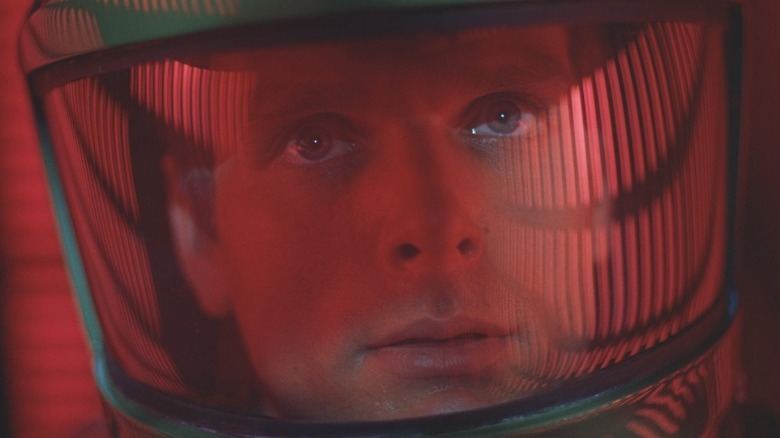
Look, if you're a science fiction fan, you've already seen Kubrick's gift to the genre. If you're a film fan, you've already seen the movie that pushed the boundaries of visual effects, and whose cinematographer pulled off some intense work recreating life in space. Honestly, whoever you are, you've probably seen "2001: A Space Odyssey." But just in case you haven't, or if you need a reason to rewatch it, it's available on HBO Max, and it's still spectacular.
With a languid pace and muted storytelling that recalls Tarkovsky's work, "2001" is worth revisiting once in a while for the new details you'll notice and the new appreciation you'll have for its smallest moments. The showdown between Dave and HAL may be more tense than you remembered. The scenes in which Dave is trapped outside the ship are harrowing, yet the dissembling of HAL's components is upsetting in a vital way. It's not HAL's fault that his logic circuits can't handle the secret mission he's in charge of executing. His fate is all too human, reminding us that it's our own flaws, unaddressed and unrecognized, that slow our path to evolution.
Underwater
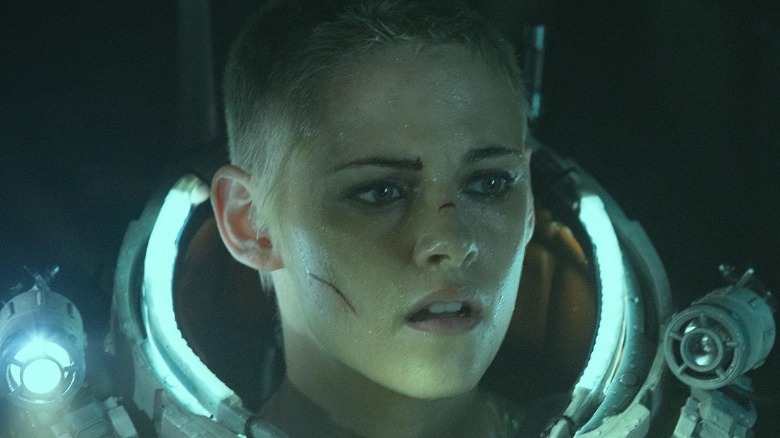
Sometimes, we just want a movie to be enjoyable, to offer up a solid night's entertainment. "Underwater" is an underrated tribute to that humble style. It's a cheeseburger griddled and plated well: a little "Alien" and a little "The Abyss," all of it smashed into the Lovecraft mythos. Yes, "Underwater" is a Lovecraft movie that nobody bothered to market as a Lovecraft movie, and that's a shame.
It starts with all hell breaking loose as a futuristic underwater drilling station undergoes massive structural failure. The reasons why are doled out between gloomy shots of the denizens of this sunken kingdom. The characters' backstories are slim, yet the critique that they have no individuality doesn't ring true. Their behaviors, their tics, and their dialogue tell us a surprising amount about each of them as they march towards a watery death. Kristen Stewart turns in a remarkable performance, one that gives her strong character emotional weight, but the best part of this movie is the speculation it leaves in its wake.
Unforgiven
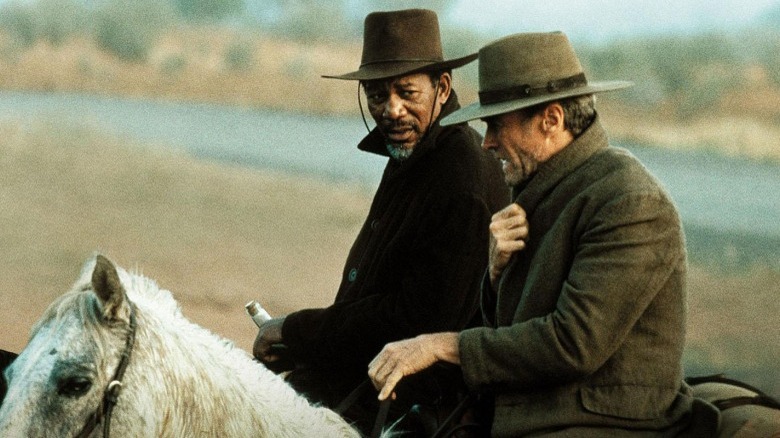
Clint Eastwood offered up decades of straight shooters, honest to goodness rootin' tootin' cowboy-and-cop classics. 1992's "Unforgiven" is the capstone of his spaghetti western legacy, and it's a difficult examination of the complicated ethics the once-romantic Old West lived by. And yet, it still has plenty of rootin' tootin' shootin' to enjoy. It's a movie that every fan of the "Red Dead Redemption" franchise should see. In this world, evil men might find salvation before they die, while good men often hide the horrors they're capable of.
"Unforgiven" embraces a comfortable old trope: the story of a man coming out of retirement for one more job. But that's the only cozy thing about this movie. Eastwood's Bill Munny feels the weight of his past on his shoulders. He still feels the pull of the life of violence he once led, and it drags him back into a world he meant to leave behind. By the film's end, there's no easy answer as to whether or not he's still a hero.
Waiting
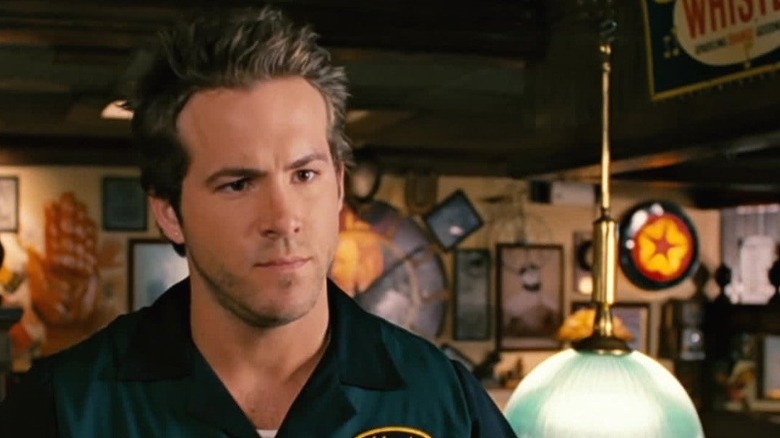
"Waiting," released in 2005, isn't high art. It's "Mystic Pizza" for guys, and a fairly solid version of "Clerks" or "Office Space" for the restaurant set. But it's funnier than its small budget and then-slim cast suggests, and a big part of the reason why is a young Ryan Reynolds. It's not all his show to blow, however, as the affable Justin Long takes another shot at headlining a movie, even though he's at his best in dork ensembles like "Dodgeball."
The result is a minor cult hit, best enjoyed by anyone who has worked at least a few hours in soulless food service and retail jobs. The critical response to the film was about what one would expect, and some of the jokes tread into "Porky's" territory, but damn if it doesn't hit the right nerve for the veterans of the Christmas Hot Plate Wars that take place at your local pancake house.
Wings Of Desire
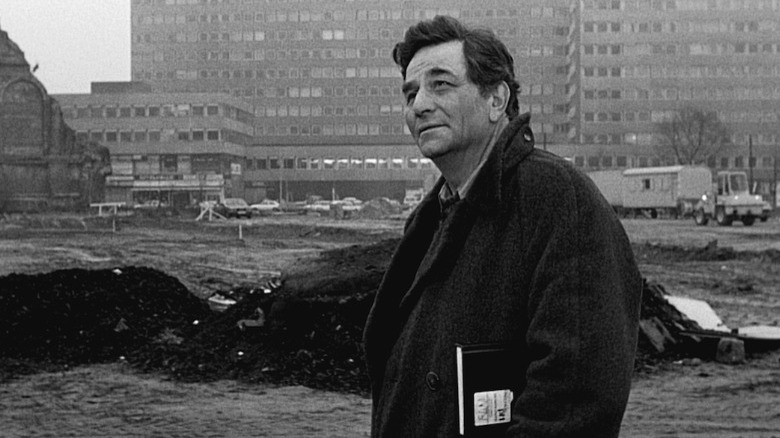
Full disclosure. In my opinion, 1998's "City of Angels" sucked. It didn't suck because it was a remake, although that doesn't help. It was the ridiculous joke of an ending. But let's set that aside and recognize that the limp effort from Meg Ryan and Nick Cage helped get the original film, "Wings of Desire," recognized worldwide as the masterpiece that it is.
"Wings of Desire" is a melancholy, sometimes absurd love story about how we need mortality to appreciate the richness of life. It has Peter Falk, Columbo himself, playing Peter Falk, and admitting that he was also once an angel. You know, I'd buy it. For anyone who thinks German cinema is stolid and humorless, Win Wenders proves that no culture is a monolith. In between the fragile, dreamlike sequences and the anthological near-human experiences that gradually weigh down the angel Damiel is a question that could upend all faith: If one must sacrifice their holy grace to experience the gift of love, what's so great about Heaven?
Wonder Woman
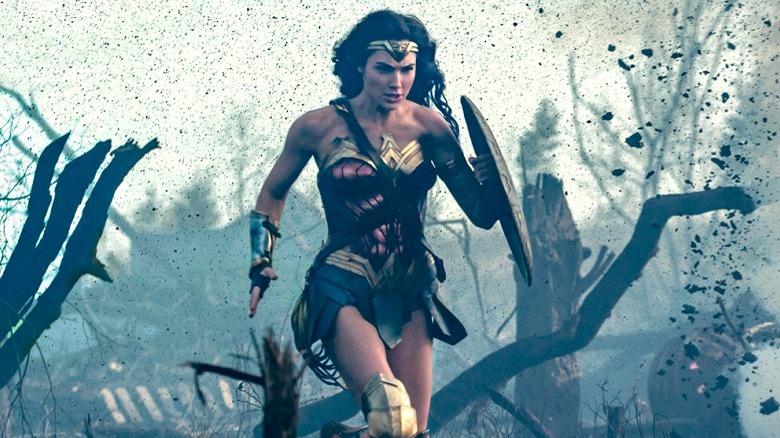
"Wonder Woman," Patty Jenkins' first foray into the DC Extended Universe, is still a great romp through comic book fantasy. Looking back at it after the divisive response to "Wonder Woman 1984," some of the problems are evident. As Diana drifts between Themyscira and World War I, the tone is uneven, and the lead up to the final boss battle is pretty messy. However, the set pieces that connect these moments are spectacular. A little girl grows up to be a living goddess, a woman who fearlessly strides across a no man's land. That's the good stuff, and "Wonder Woman" has plenty of it.
"Wonder Woman" doesn't push against its roots much, playing it safe with a mélange of some of Diana's most common origin stories. It also avoids a lot of ethical complexities beyond the "war is hell" motif. That's fine. It's sometimes a bit out of date in its tone, but there's a lively spirit that keeps it all fun. Gal Gadot is excellent at bringing out Diana's joy at all of her new experiences. Still, with all these great DC characters getting spinoffs, when are they bringing back Eugene Brave Rock and his secretive Chief?
Read this next: The Best Movies Of 2021
The post The 60 best movies on HBO Max right now (February 2022) appeared first on /Film.
via Ecobuynow

.png)



Don't be spammer